Hello and welcome to Work Week, the podcast where we tackle one big question about the rapidly evolving workplace, explore what the research says about the issue, and explain what it all means for you. I’m Dr. Gabby Burlacu, Senior Manager with The Upwork Research Institute.
On today’s podcast, what you’ll hear are my thoughts and ideas, guided by insights from the Research Institute, and brought to you by a digital proxy of my voice that was created by our team with the help of AI.
This week, we’re diving into a transformative shift happening in the workforce: the evolution of skilled work, and specifically how skilled careers are becoming more independent and less traditional. In this episode, we’re going to focus on what this means for organizations as the world around us changes and skill gaps grow. This week’s insights are hot off the press, because today The Upwork Research Institute launched an inaugural annual report called the Future Workforce Index. For this report, we surveyed 3,000 knowledge workers and 500 C-level executives. We wanted to explore how knowledge workers are managing their careers, and what this means for the future readiness of workers. And what we found was astounding.
Today, more than one in four—28%—skilled knowledge workers freelance or work independently; they’re opting to grow their own careers rather than work with one organization in a traditional, full-time employment contract. This massive shift in the talent pool has implications both from an economic standpoint—this segment of the economy earned an estimated 1.5 trillion U.S. dollars in 2024—and also from a business and work model standpoint. Organizations that don’t have the infrastructure and models in place to leverage this talent pool are missing out, at a time when skilled talent is increasingly difficult to find.
One key question for business leaders that surfaced in the Future Workforce Index was this: How can businesses adapt to the evolving nature of skilled work, to ensure they can attract and engage skilled talent?
You’ll notice that the question is not, “Should business leaders even be paying attention to this?” Because our research suggests the answer is clearly yes. The 28% of knowledge workers our research found to be working independently amount to over 20 million workers in the U.S. alone, and we also see indicators that this talent segment will grow.
Specifically, we found that 36% of full-time knowledge workers are actively considering a move into freelancing, drawn by greater autonomy, financial control, and meaningful work. Compare this to just 10% of skilled freelancers who say they see themselves moving into more of a traditional, full-time role in the coming five years.
Fans of the show will remember that, in episode two, we discussed how Gen Z in particular is rewriting the rules of the traditional career. We see that again in this research—53% of this newest and incoming generation of knowledge workers are working independently rather than signing up for a traditional 9-to-5 corporate job.
But it’s when we compare these independent, skilled knowledge workers to those in more traditional 9-to-5 roles that things get really interesting. Because these skilled freelancers are actually positioning themselves to be more future-ready than their full-time employee peers. The Future Workforce Index suggests five dimensions along which workers need to be future-ready.
First, they should focus on gaining experience in fast-growing areas like machine learning, technology design, and sustainability.
Second, they should find avenues for continuous learning and ways to apply the new skills they learn.
Third, they’ll want to develop proficiency in using emerging technologies like AI.
Fourth, they’ll want to continue developing those uniquely human skillsets that experts agree will become increasingly important as we work alongside and manage AI agents more and more often. These include what are called human-centric skills or soft skills, and expand beyond the technical to include broader competencies: critical thinking, clear communication, and problem solving.
And finally, skilled knowledge workers will want to maintain their motivation and enthusiasm to continue developing and growing their career as the environment around them changes.
Interestingly, our research finds that skilled freelancers are pulling ahead of skilled full-time employees in just about every dimension. AI in particular is a dividing characteristic between these two groups. Sixty-two percent of skilled freelancers are regularly using AI tools and embedding them into their workflows. This is compared to just 49% of full-time employees. At the same time, 54% of skilled freelancers say their skill level in using AI is advanced, compared to just 38% of their full-time counterparts.
And this is having a real impact on professional opportunities: 82% of skilled freelancers say that, compared to just one year ago, they have more opportunities to leverage their skillsets—and AI-enabled work is helping them boost their earnings. Only 63% of full-time employees share the same sentiment.
Now consider these findings from the perspective of a business leader. Companies vary in terms of where they are on their AI journey, but most are not satisfied with their pace of progress. Recent McKinsey research found that just 1% of business leaders describe their AI journey as “mature.” So a large and growing, future-ready talent pool with greater AI proficiency should be a dream scenario for organizations, right?
Well, not so fast. Our research finds that many business leaders still think very traditionally about the talent sources available to them. Many expressed discomfort with some of the implications of an independent, entrepreneurial group of workers. Ninety-five percent told us they’re not comfortable with the idea of a worker considering themselves an entrepreneur at all. Fifty-nine percent said they don’t like the idea that someone would work for other organizations at the same time as for their own—in fact, one in two business leaders considers this “wrong” to do. At the same time, 38% said that a gap in workforce skills is going to be a top concern this year, potentially impeding their organization’s ability to achieve its strategic objectives.
What the data is making increasingly clear is that, especially as workplace use of AI tools accelerates, business leaders are not going to be able to have it both ways. By strictly adhering to traditional talent models, they’re going to miss out on an important set of highly skilled individuals. To leverage the talents of these highly skilled individuals, they’re going to have to leave their comfort zone.
In each episode of Work Week, we like to wrap by giving our listeners an action to consider implementing and an idea to reflect on.
This week’s actionable item is geared toward business leaders. Ask yourself: Are you fully using all the talent that’s available to you, or are traditional hiring models holding you back? In our previous research at The Upwork Research Institute, we found that 48% of C-level executives brought a freelancer in specifically to jump start a delayed or stuck AI project—for many of our listeners, that might be a good place to start.
Once you identify a project, ask yourself how independent talent can play a role, and how you can bring someone in as a test case. Focus on areas in your organization where skilled freelance talent could fill critical skills gaps. Test the waters with a pilot project and measure your results. If it’s successful, build from there by determining if there are any policies or practices that would need to be adapted to scale the use of skilled freelancers.
And for this week’s reflection question, ask yourself whether there are companies in your industry approaching shifts in the labor market in innovative and effective ways that you would like to learn from. Our research has found that top-performing companies—those in the top 25% of year-over-year revenue growth—are already leveraging non-traditional talent models alongside their full-time employee base. We’ll discuss this in more detail next week, but it’s worth mentioning now that this doesn’t always look like a one-to-one match between an organization and an independent or freelance worker. These top-performing companies are leveraging non-traditional work through partnerships with managed services organizations and agencies—which are small businesses composed of multiple independent workers—as well as strong AI+Human strategies, helping fuel their growth in a rapidly evolving world of work.
And that’s a wrap for this episode of Work Week! I’m Gabby Burlacu, hoping you’ll tune in next week for more insights from our Future Workforce Index research. And if you found today’s insights valuable, share this episode with a colleague and subscribe for more conversations about the future of work.







.png)
.png)
.png)
.png)
.png)
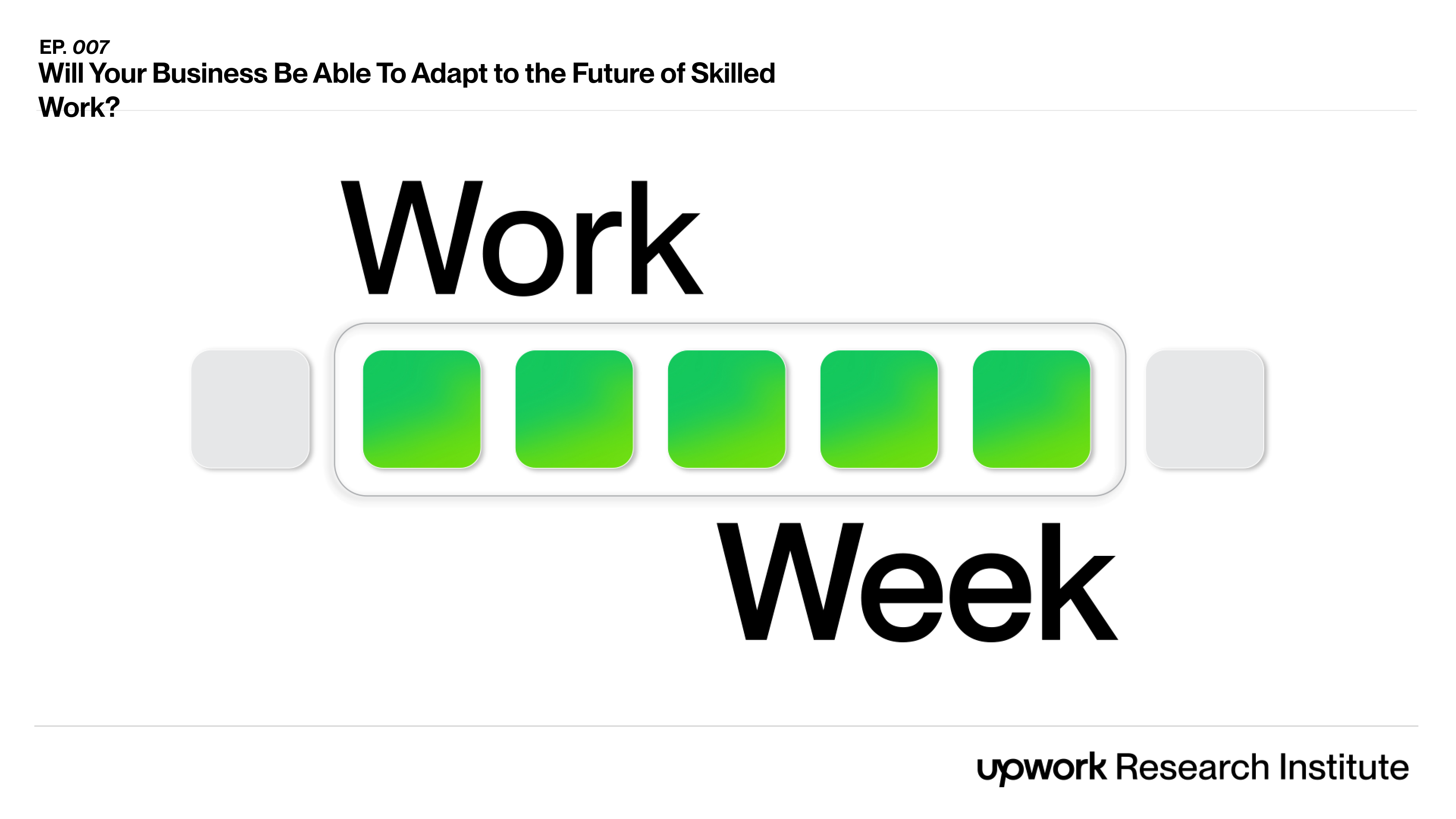


.png)

-p-500.jpg.png)

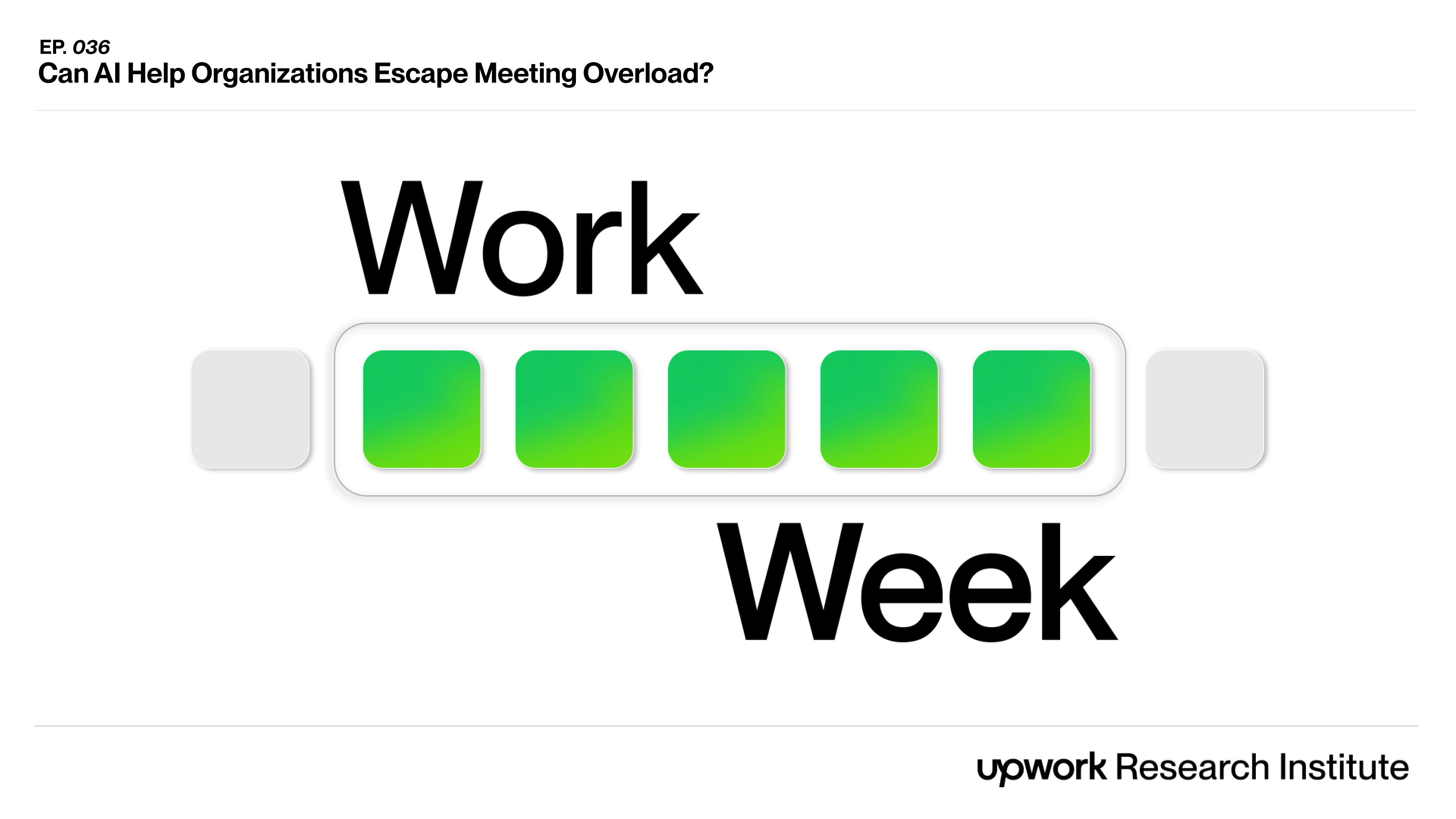

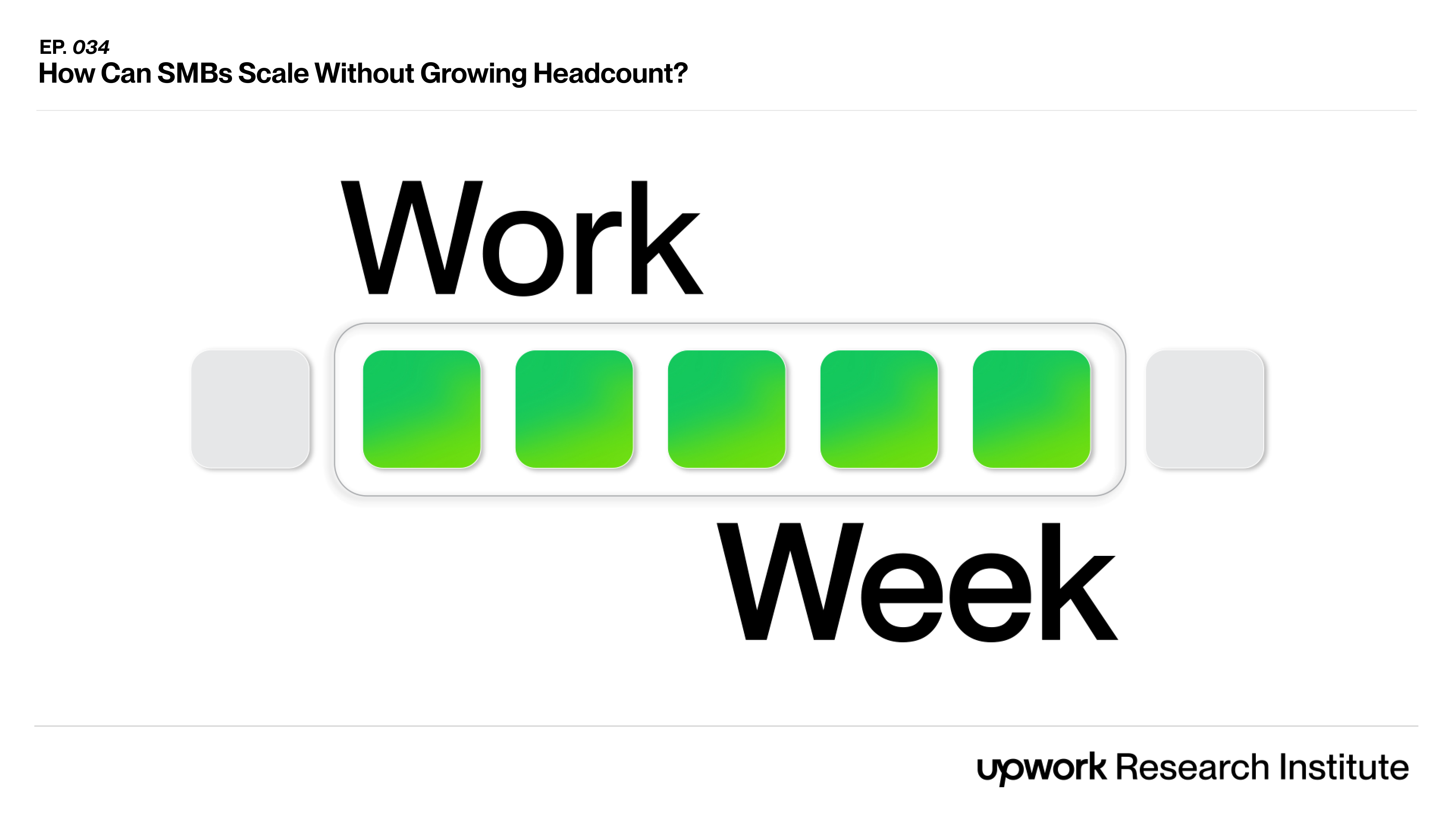
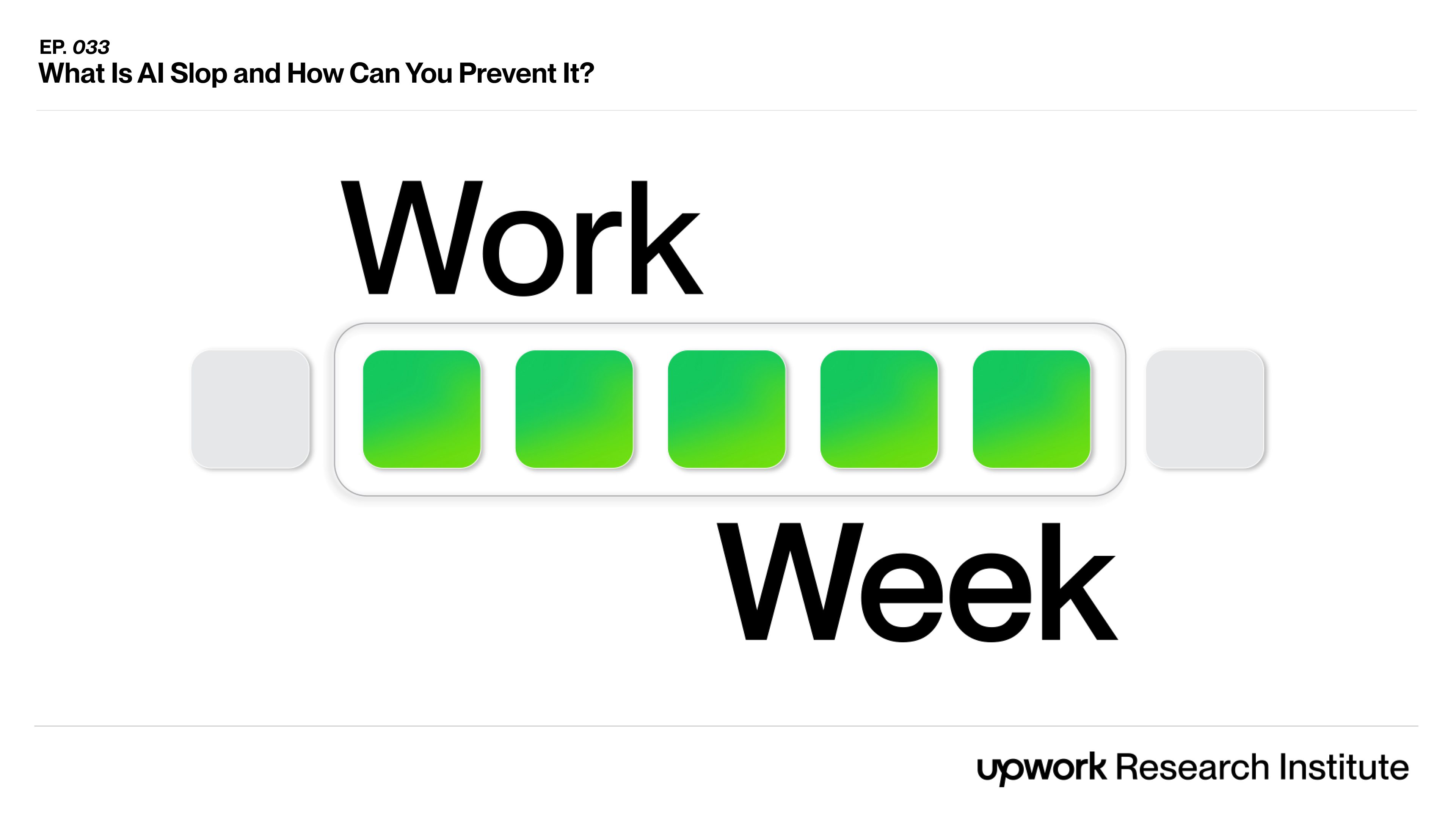
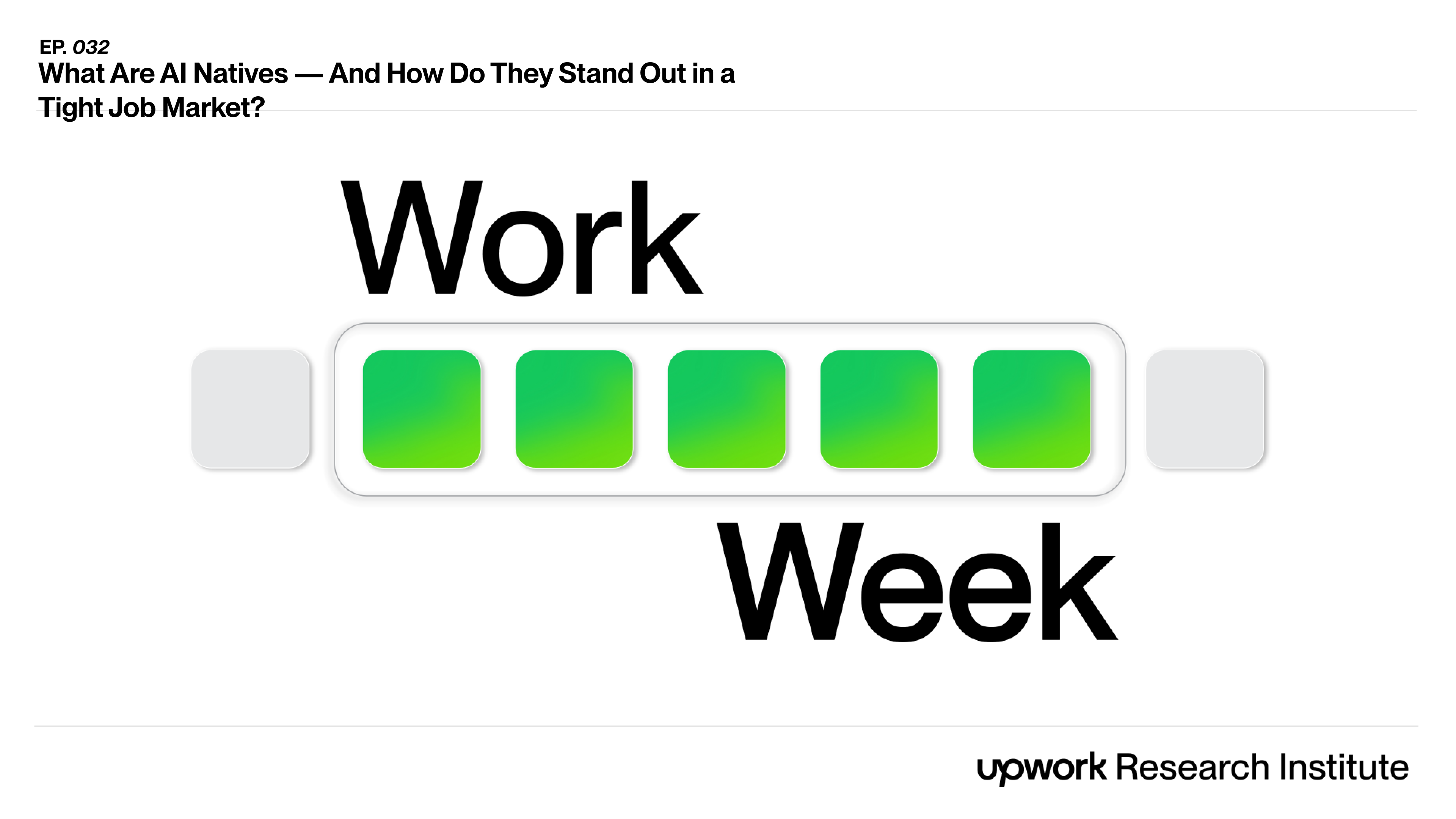
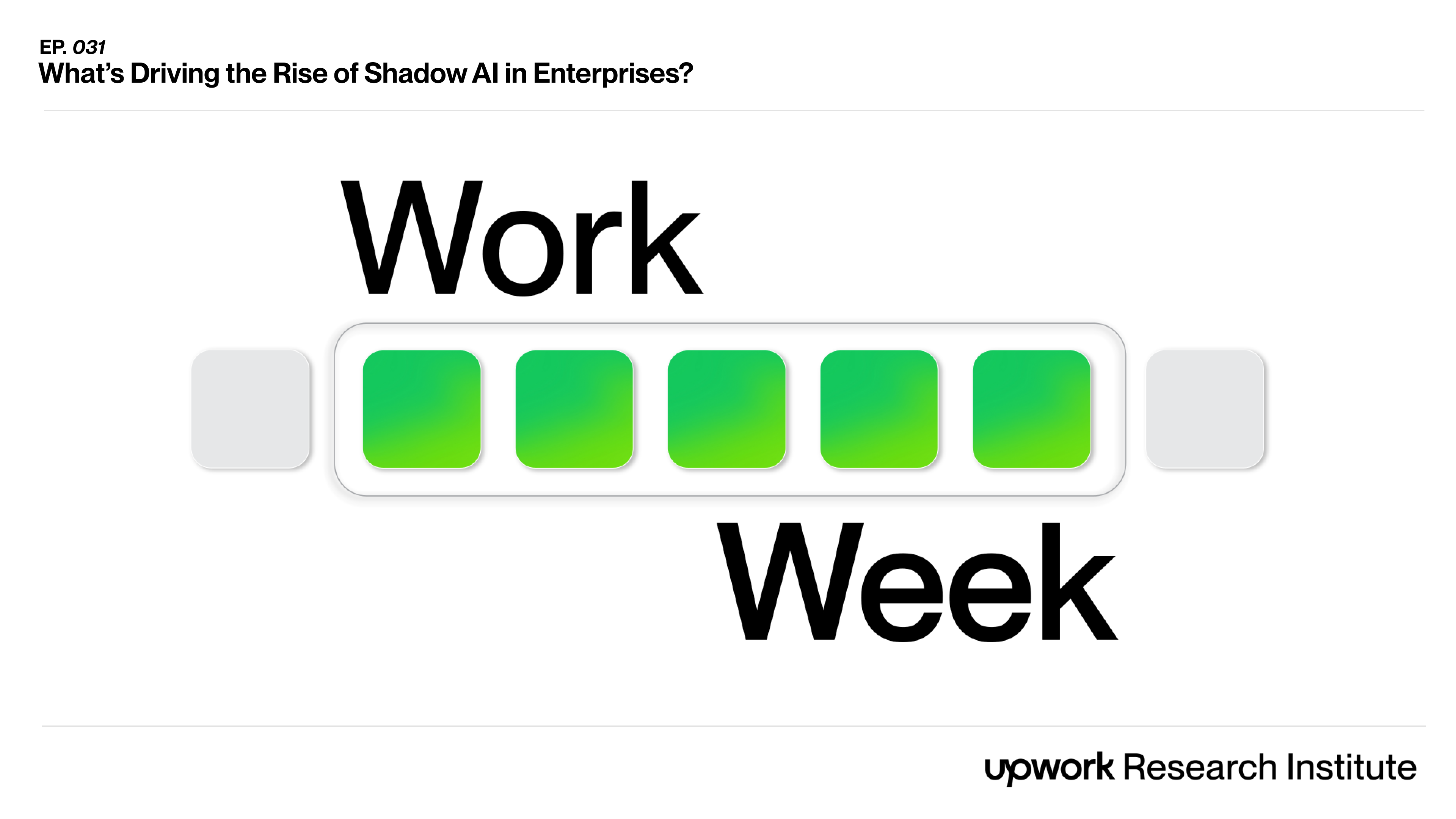
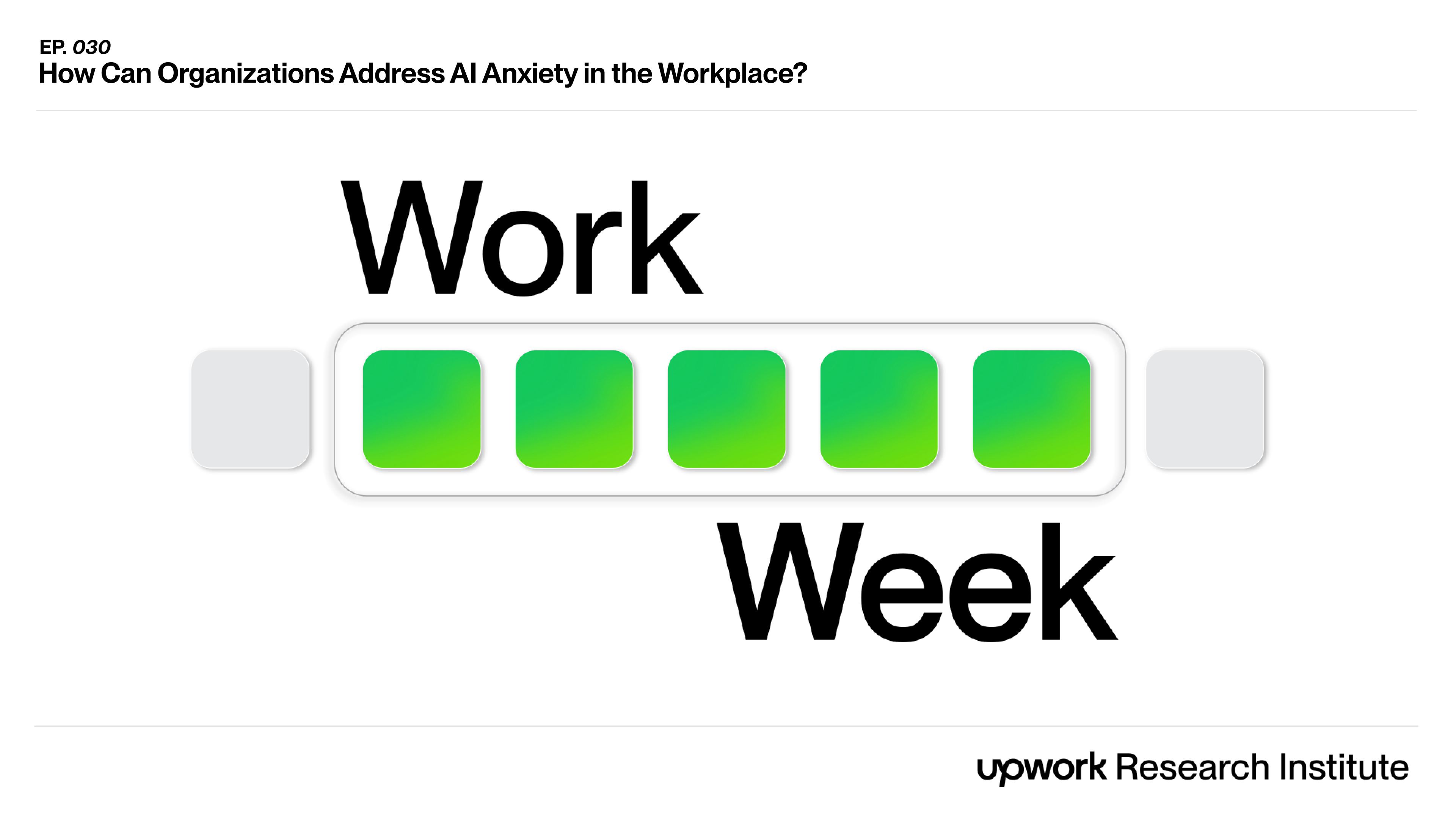
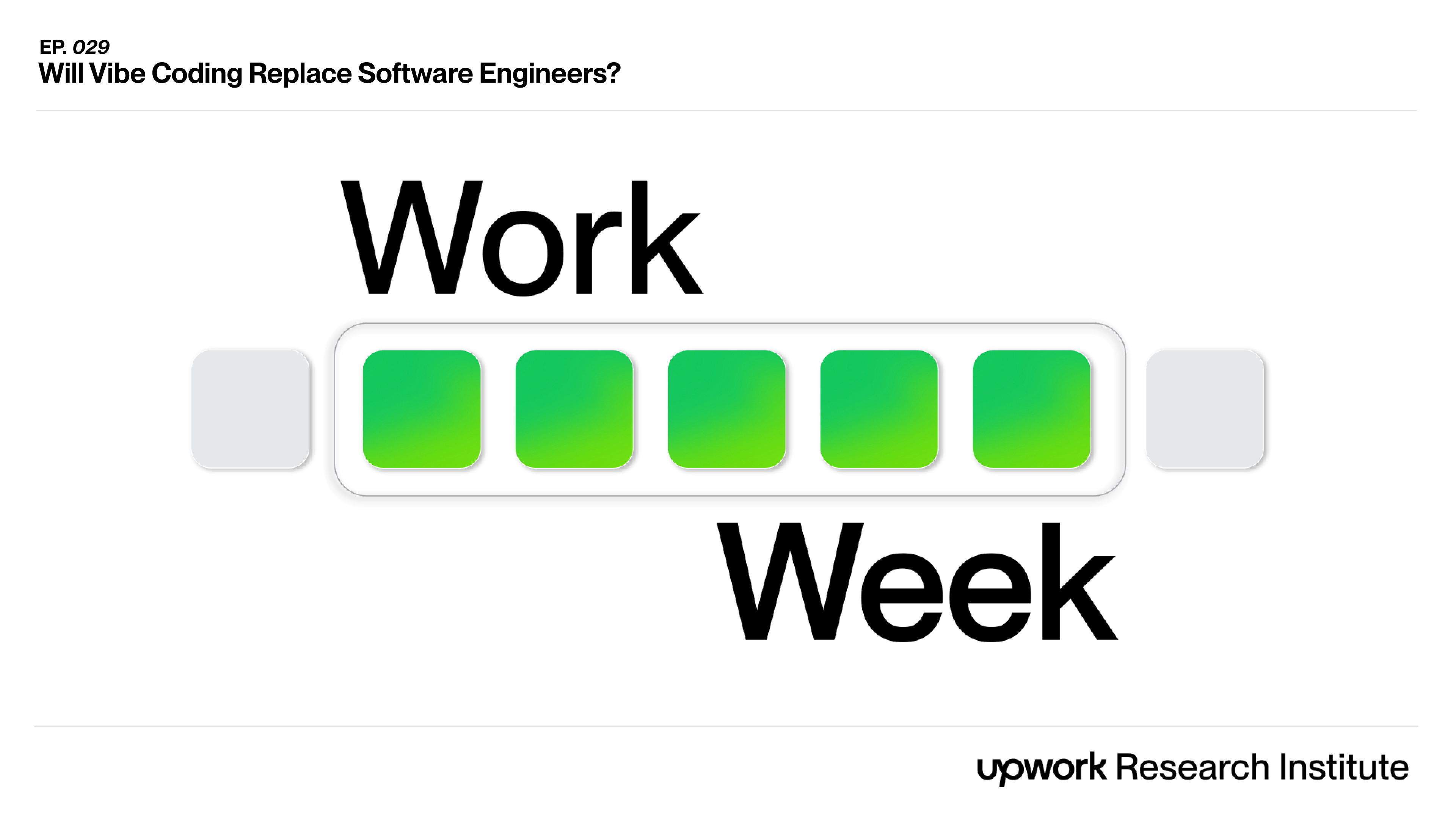
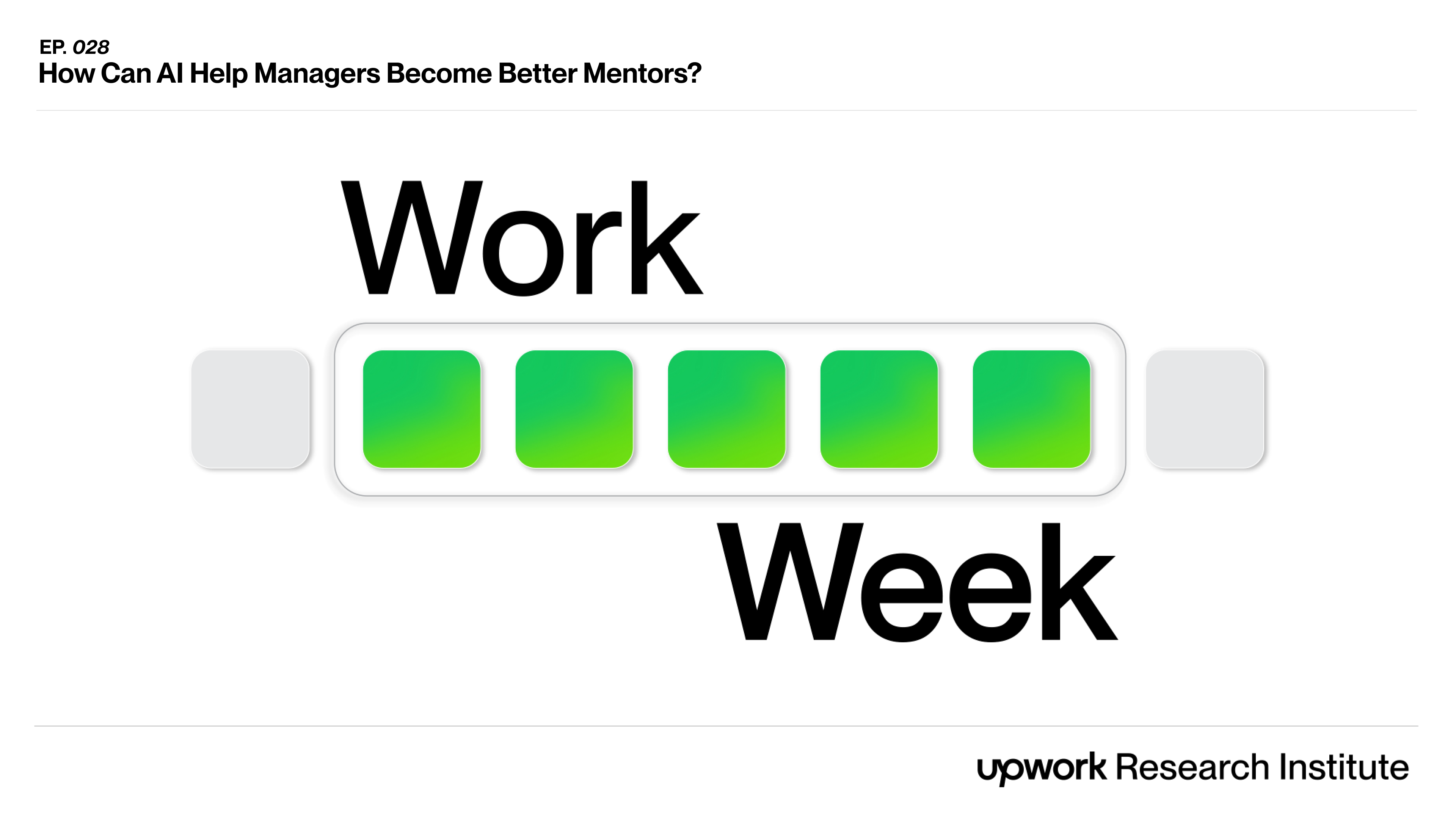

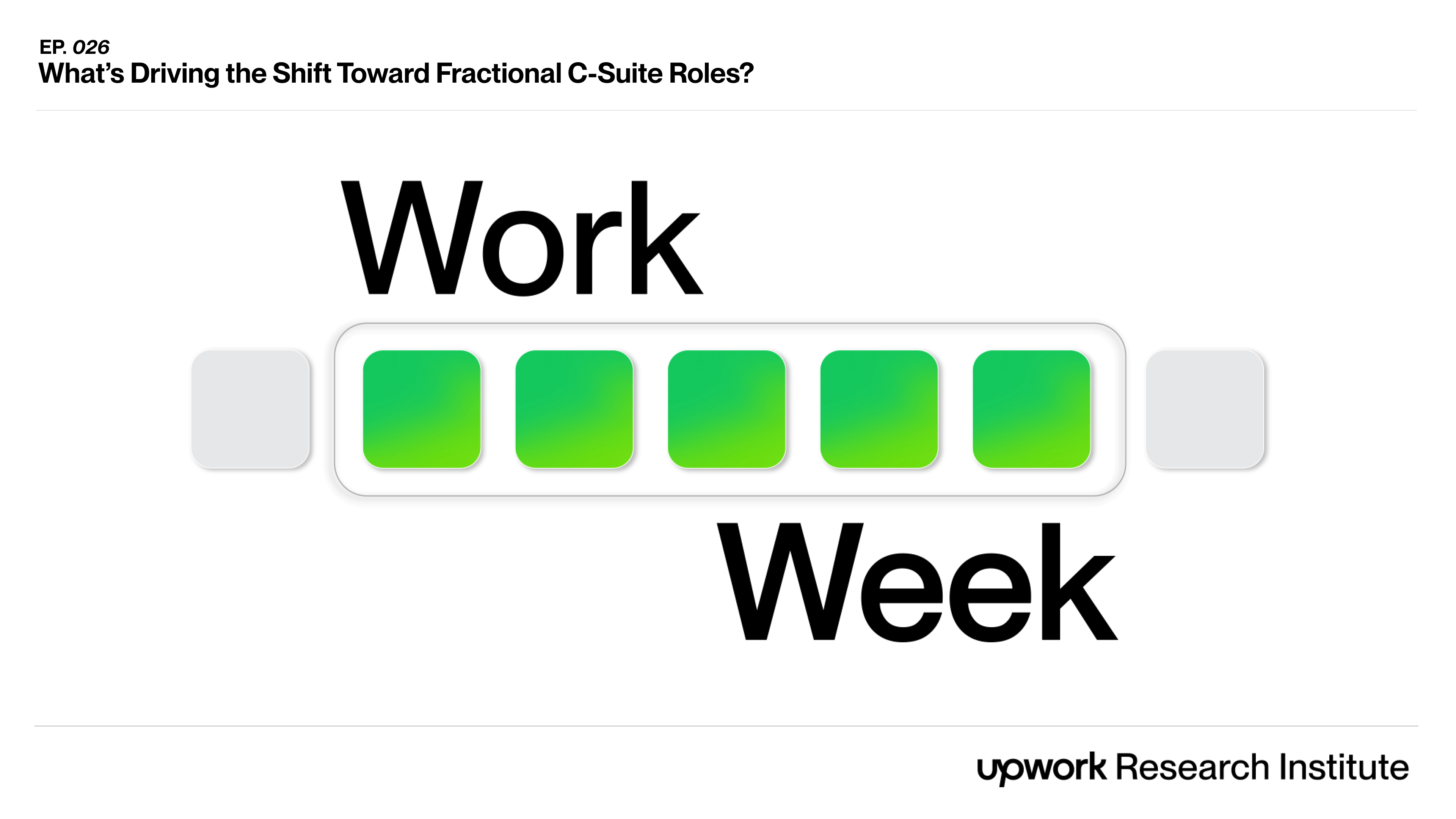
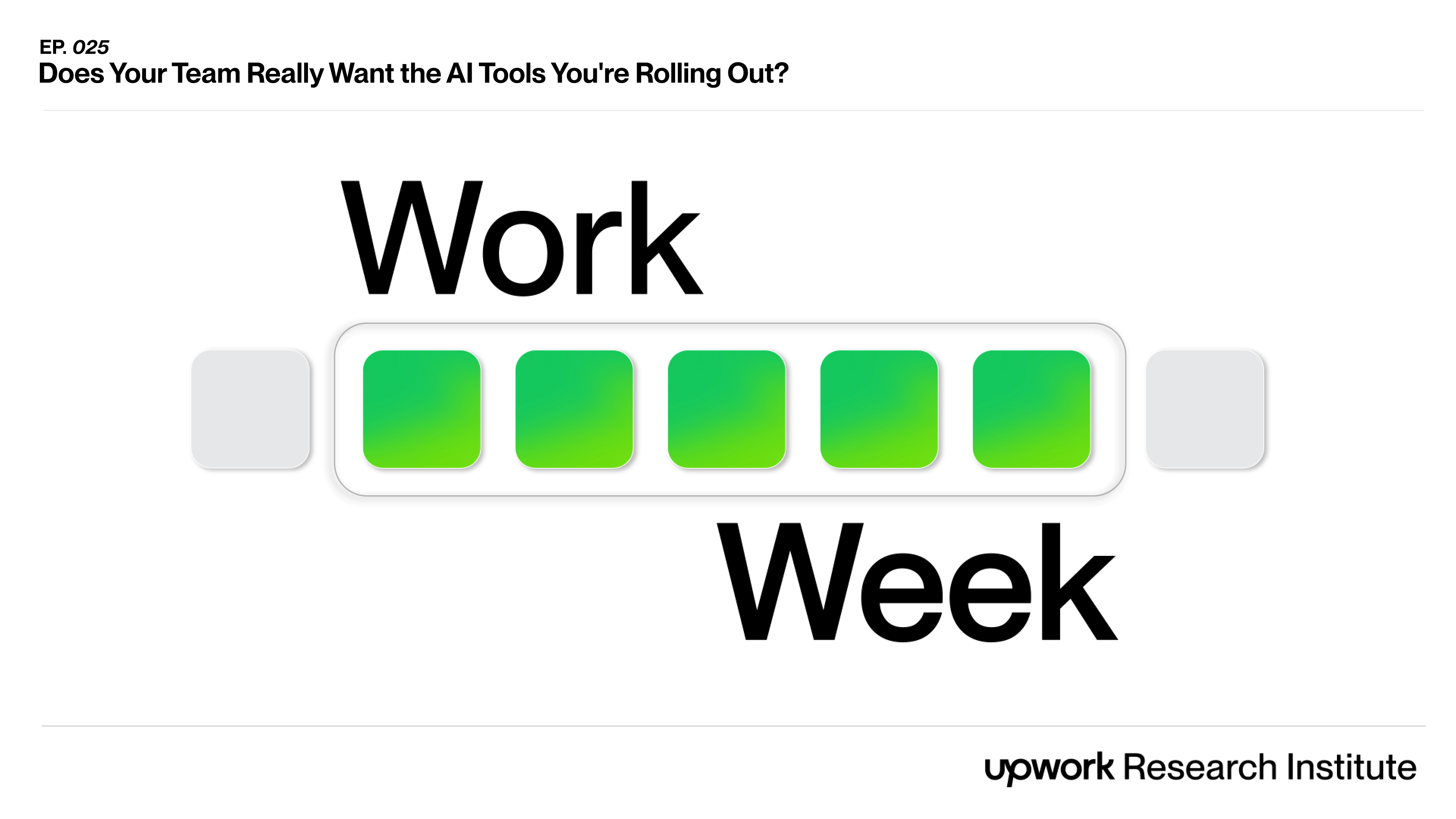
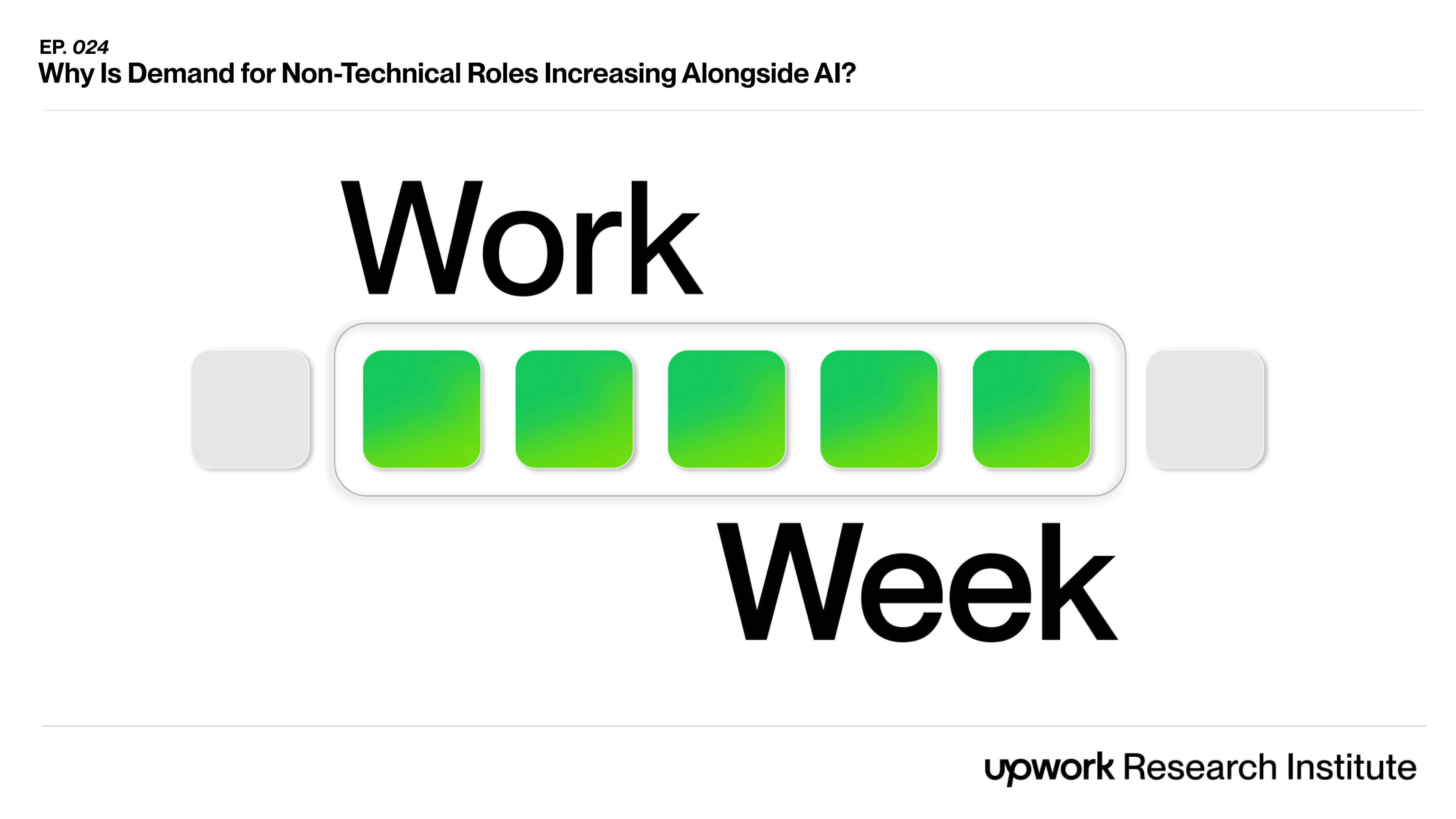
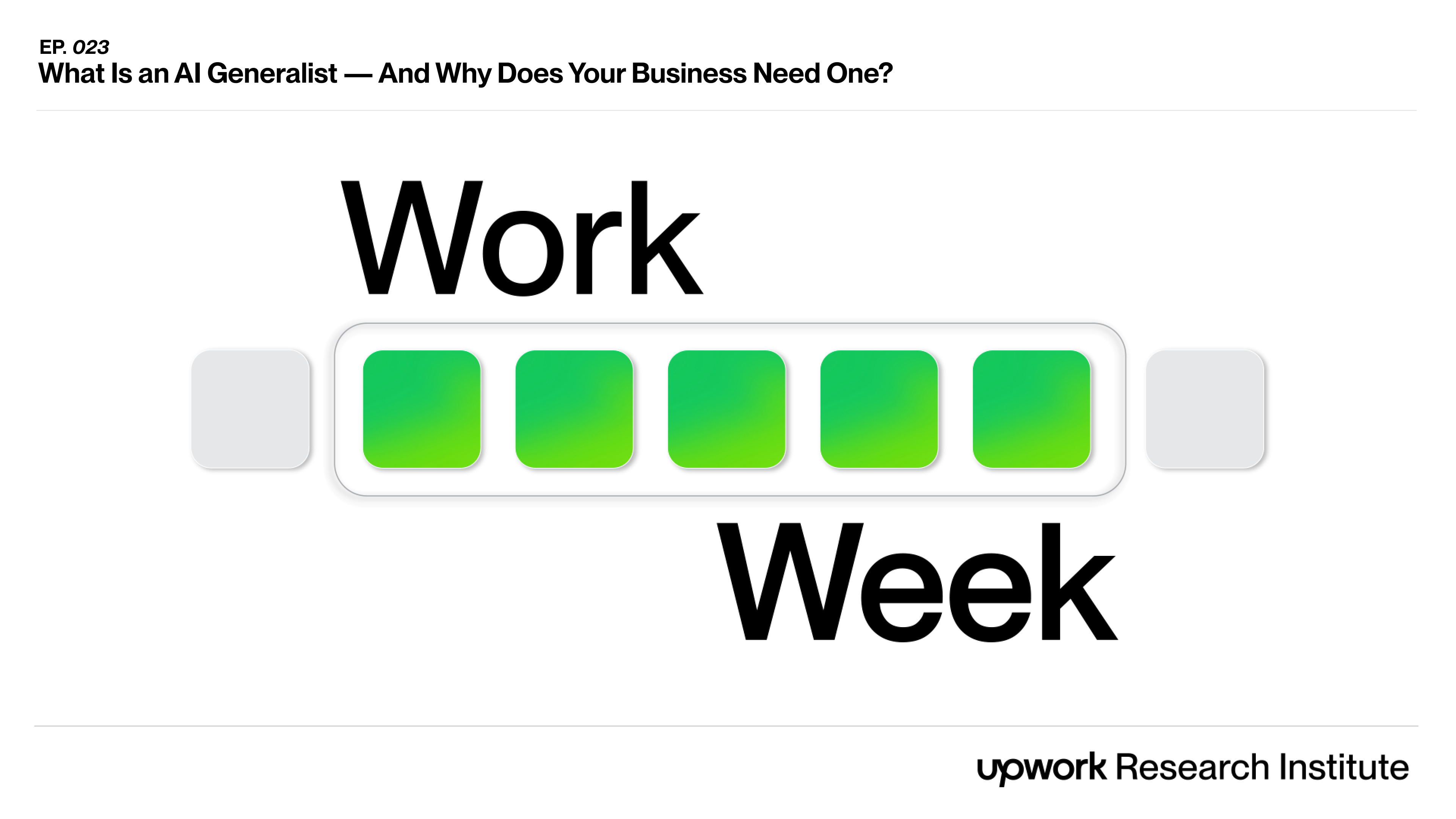
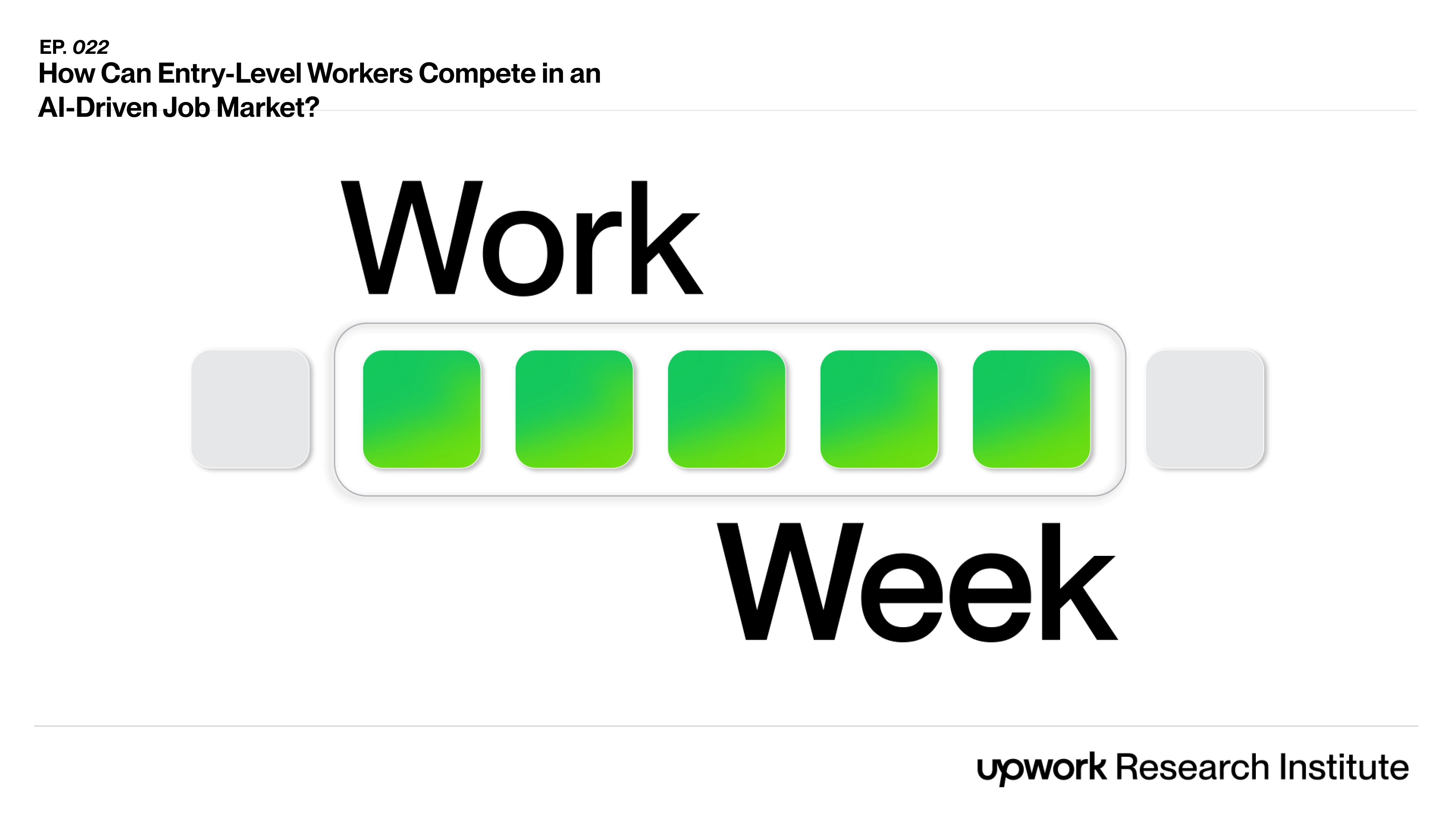

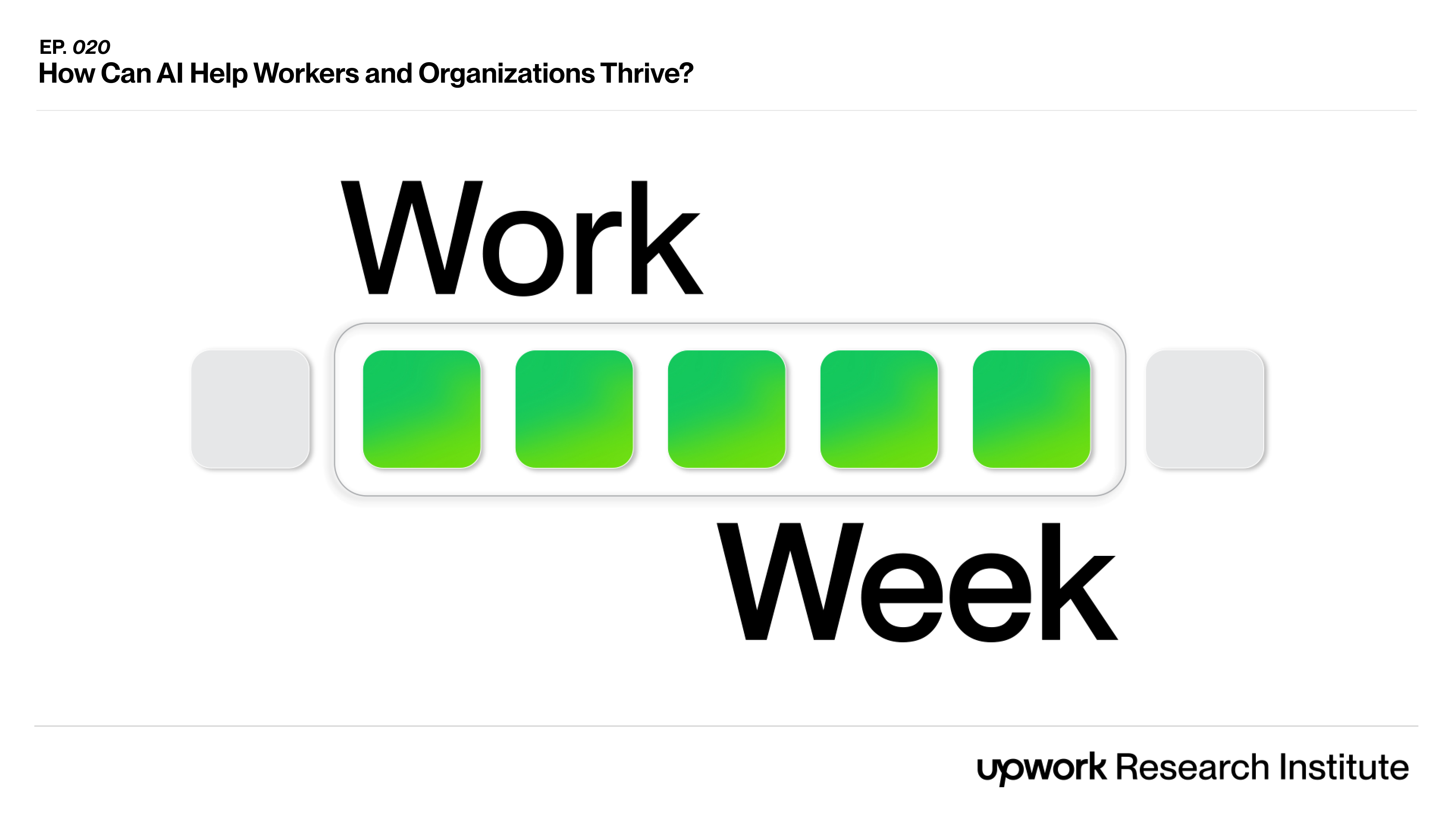
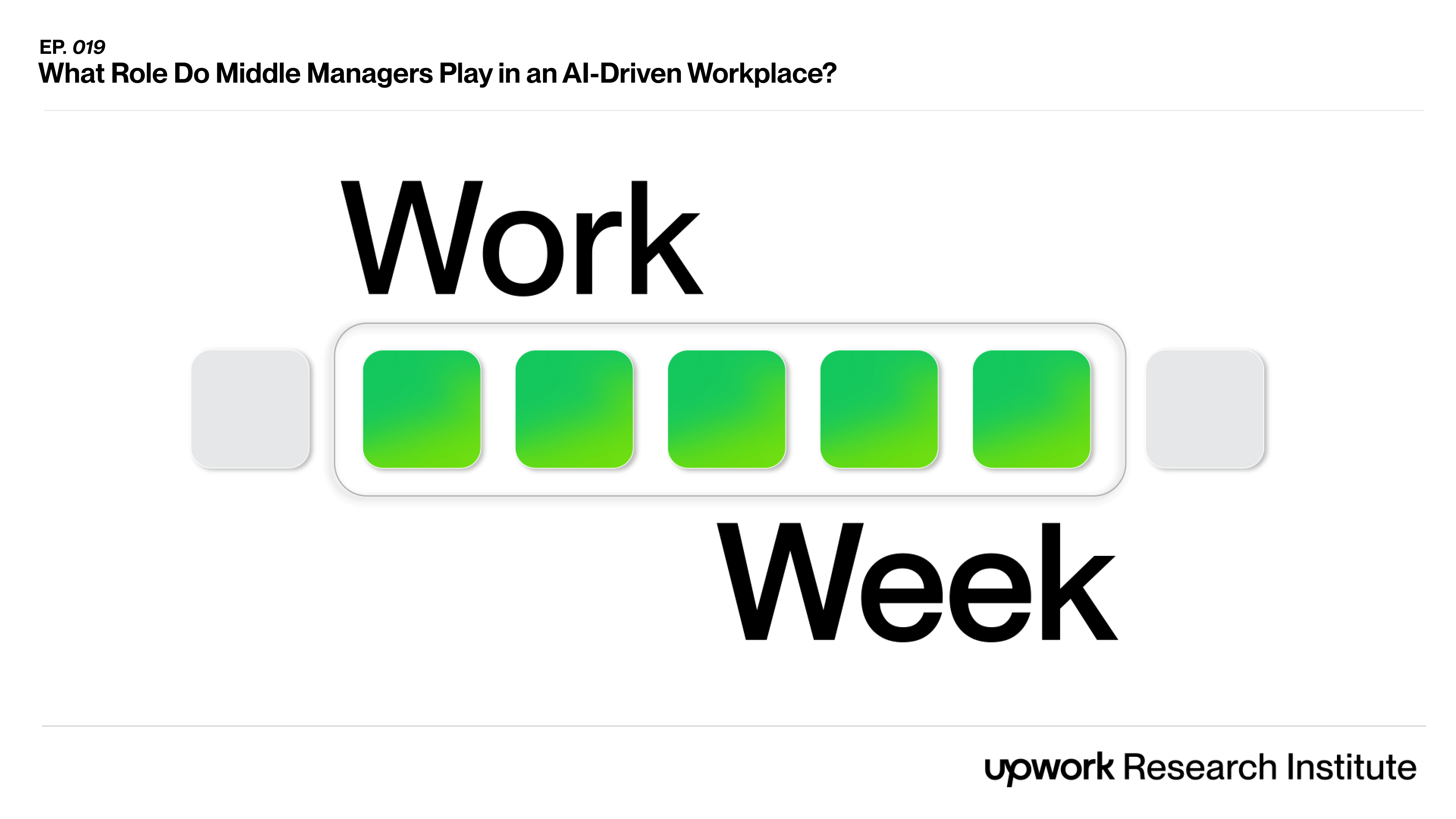
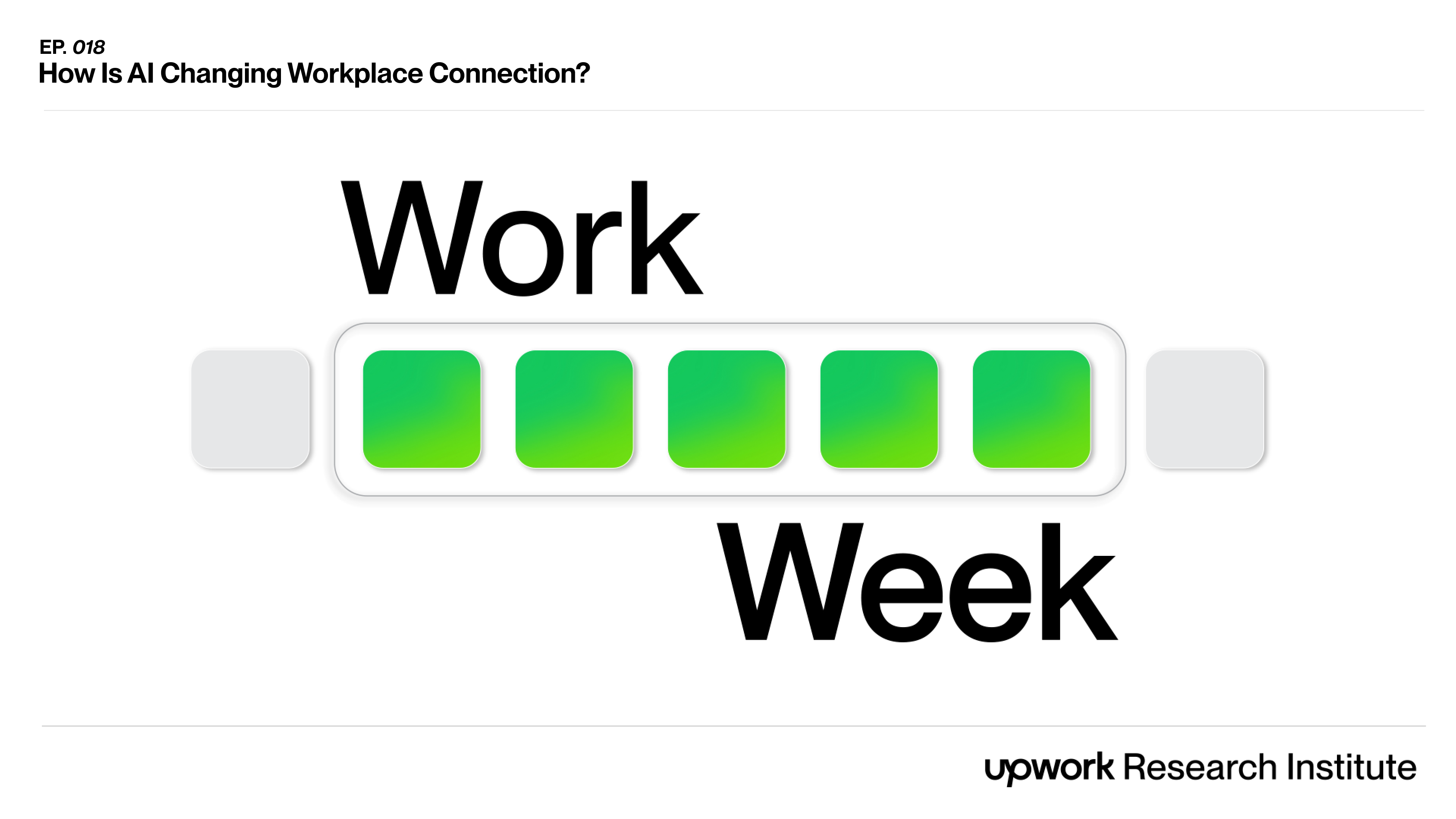

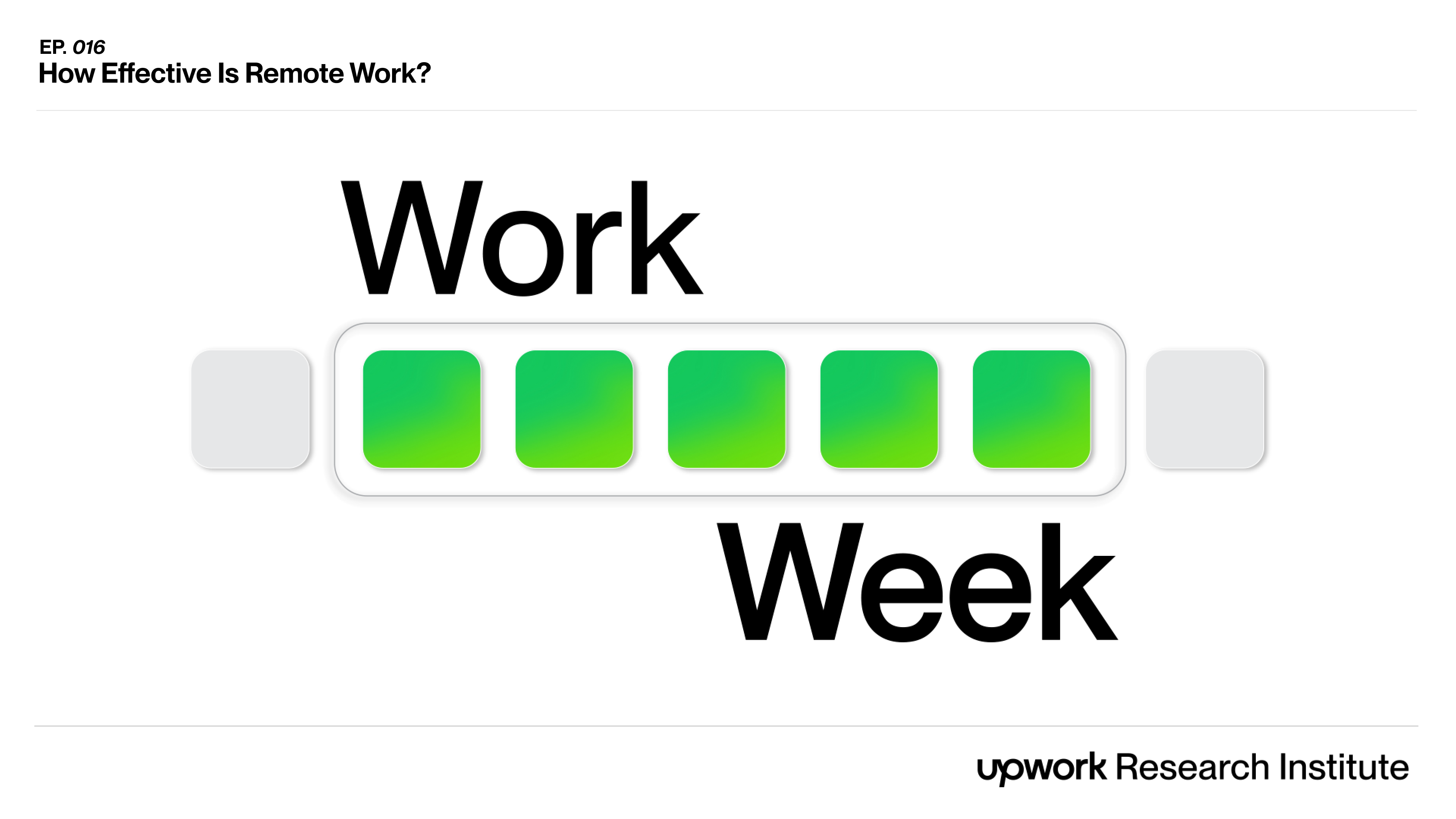
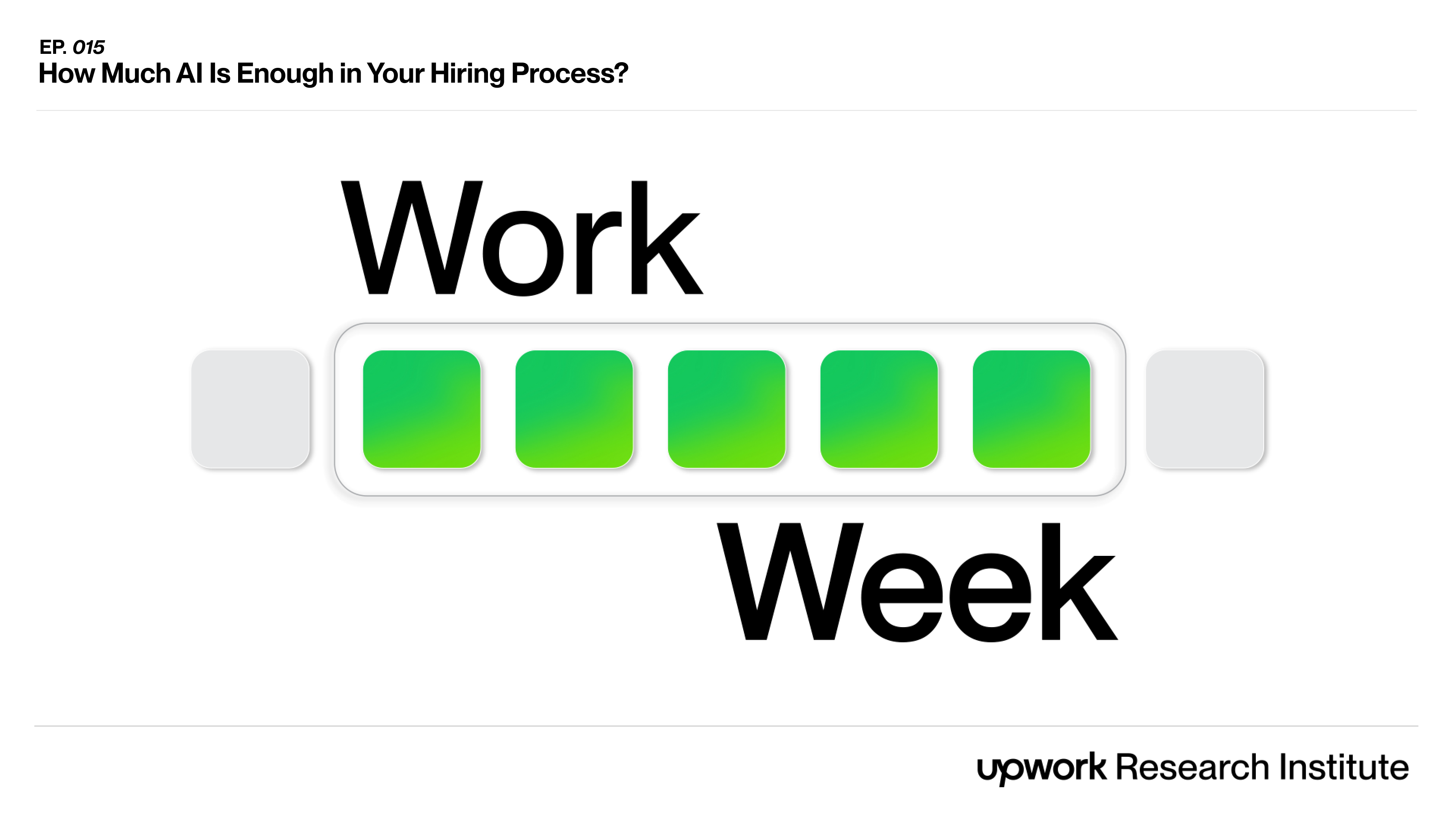

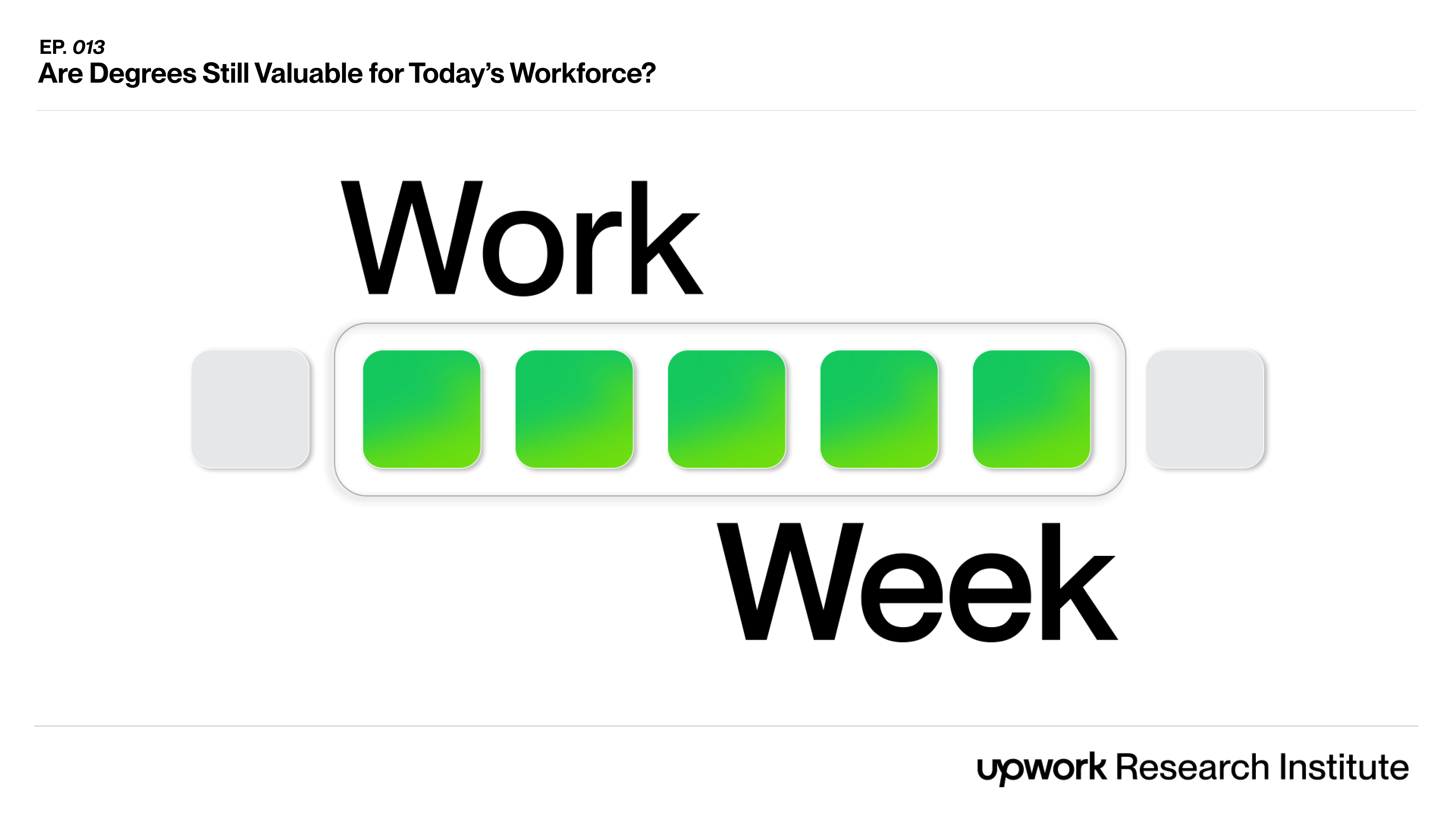
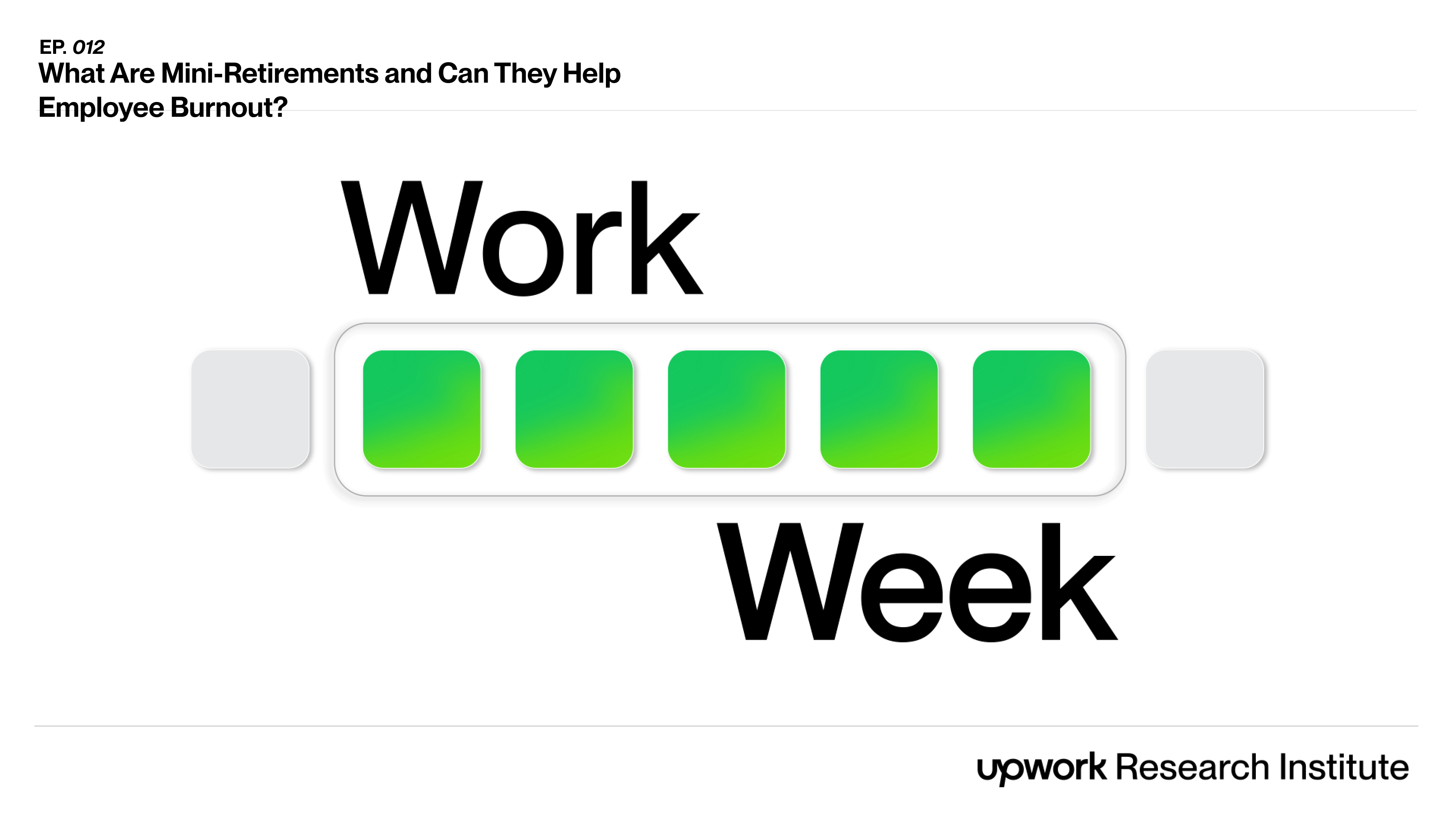
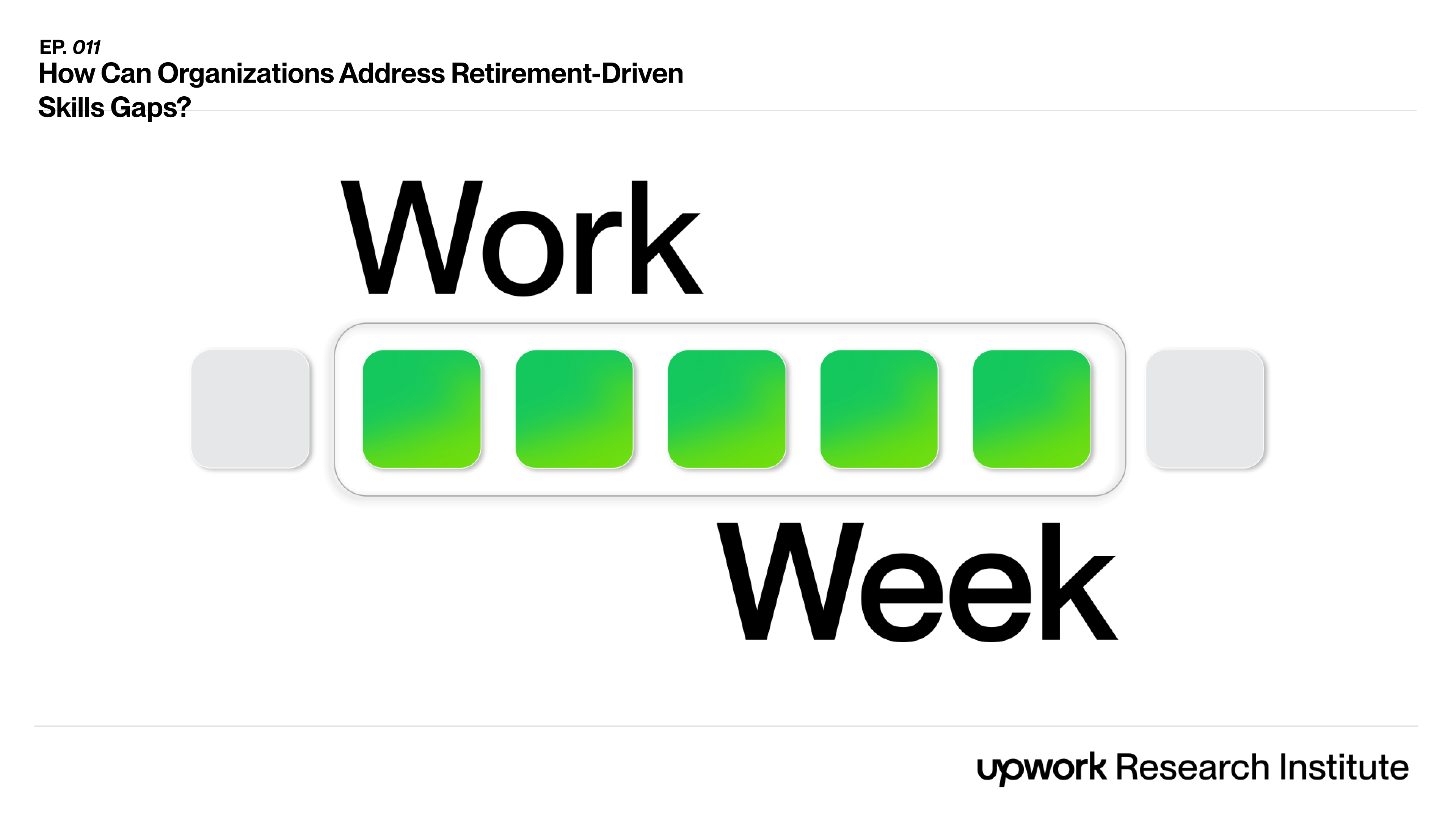
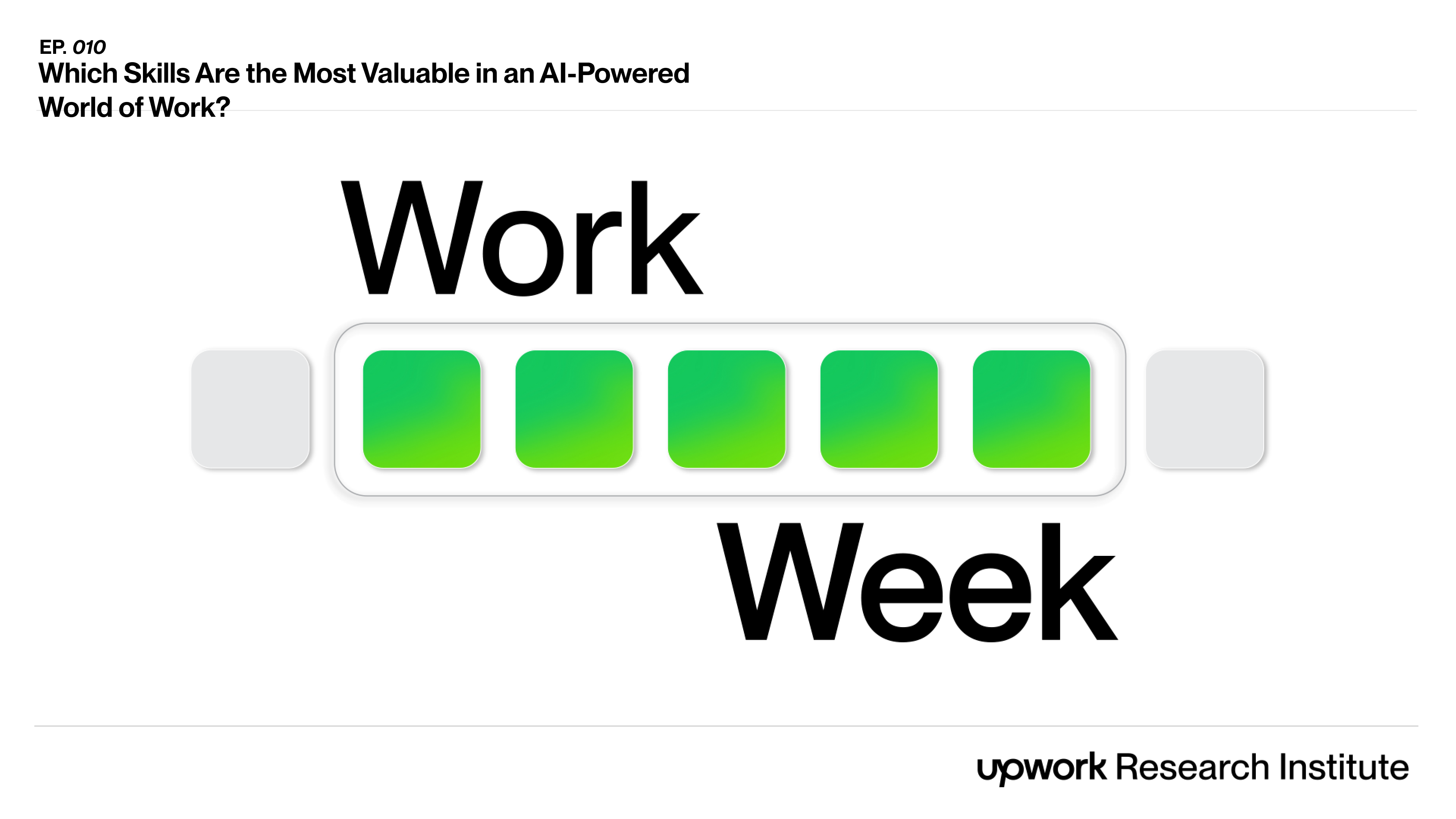
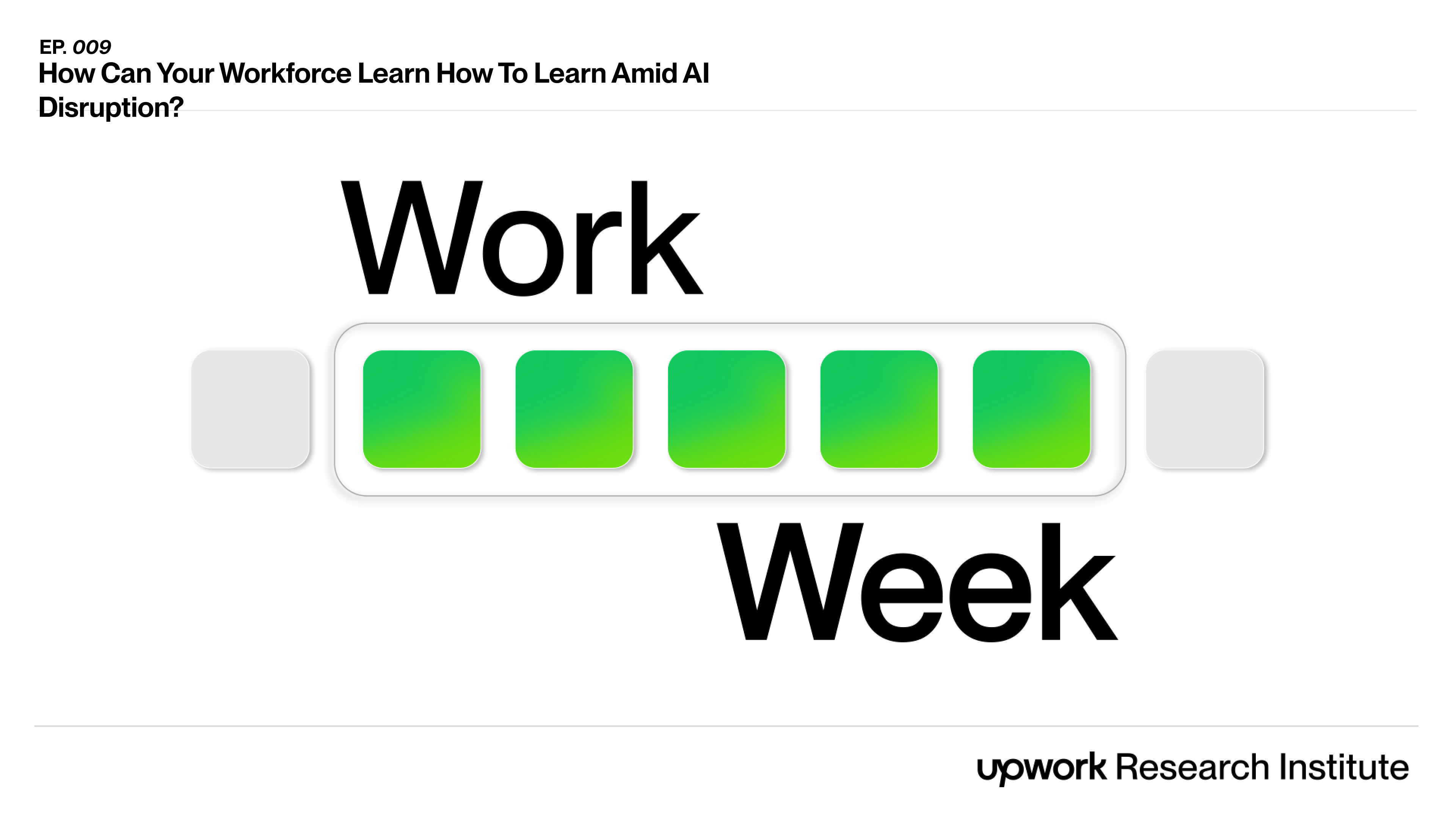
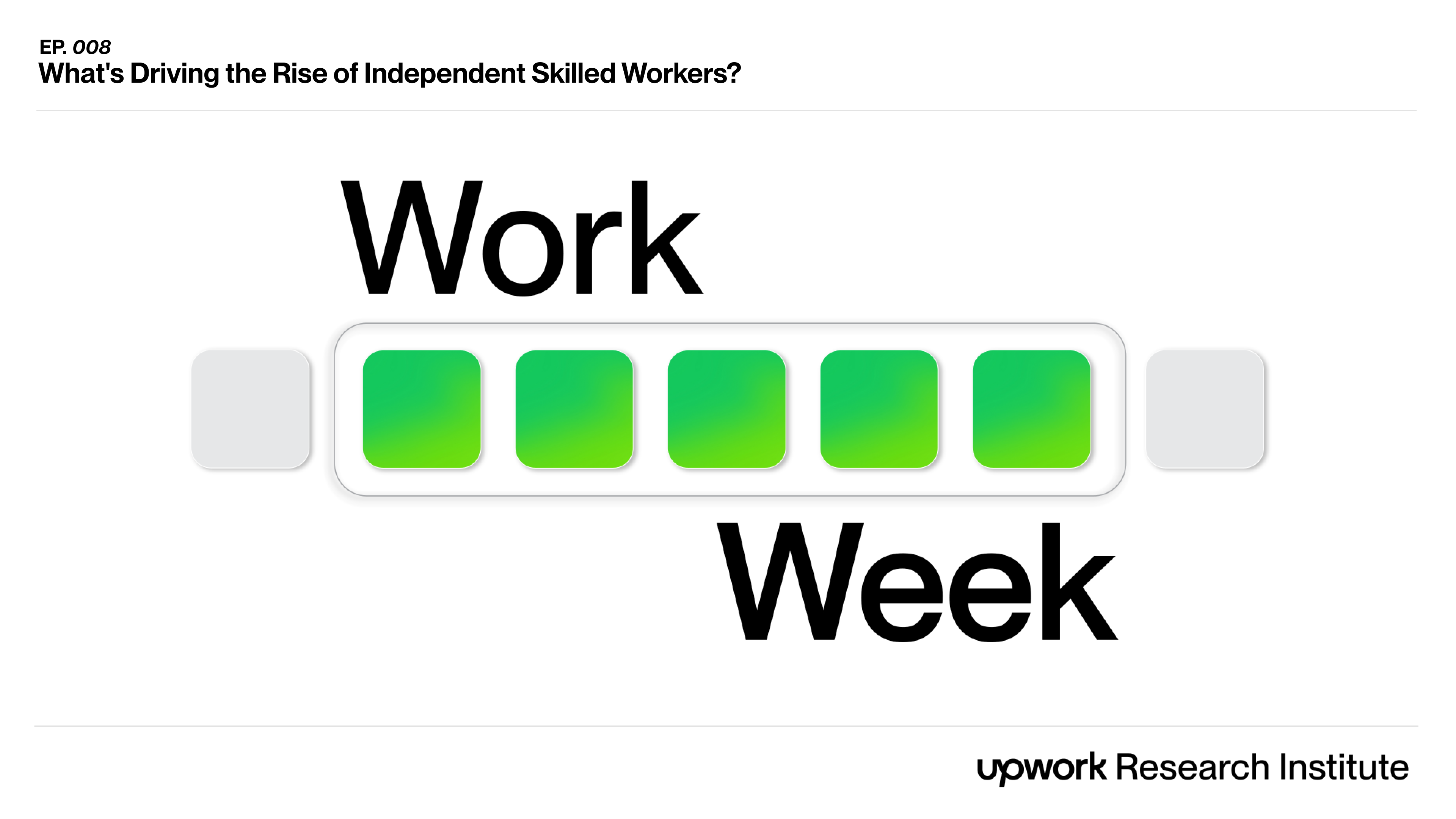
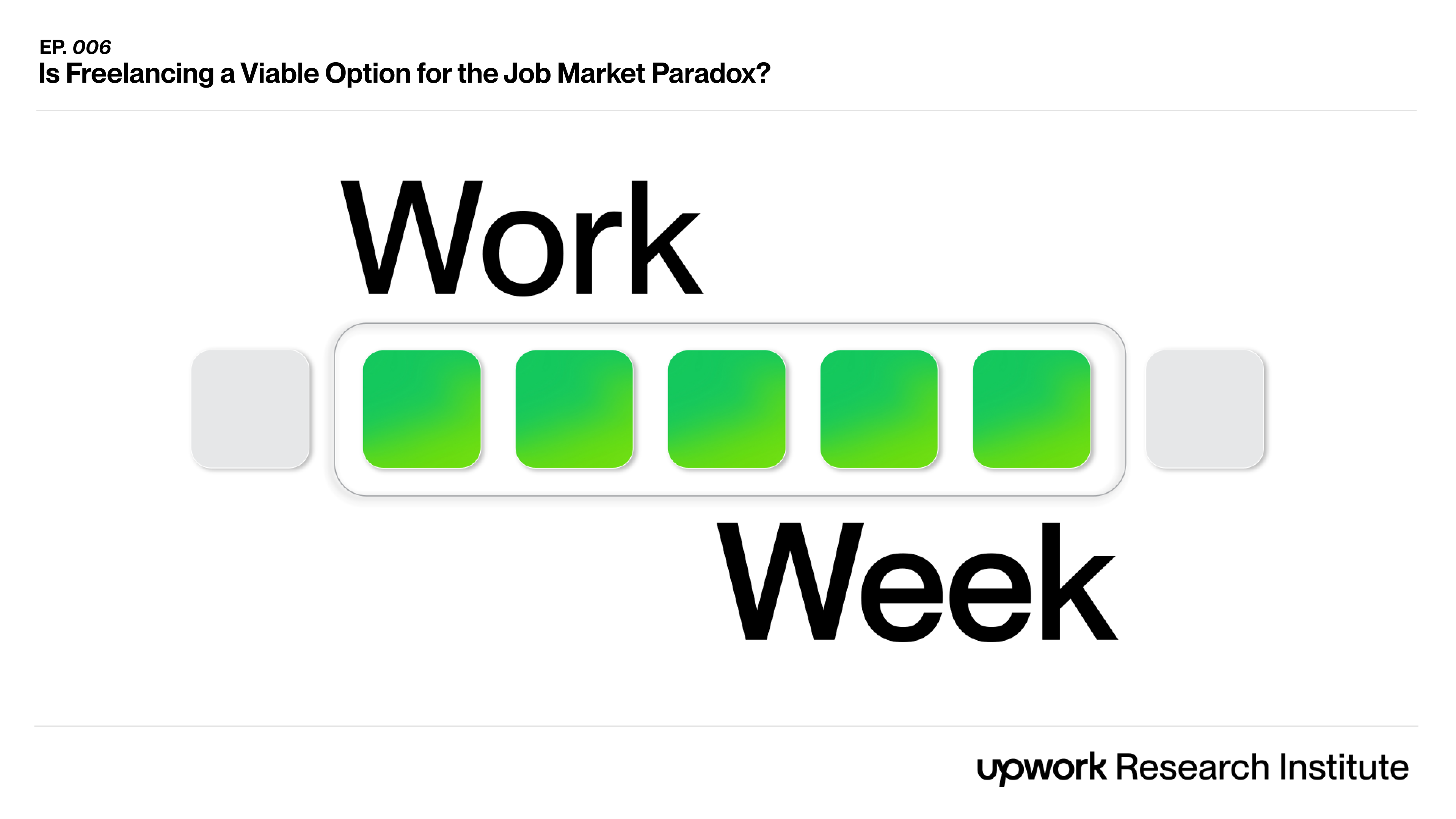
.png)
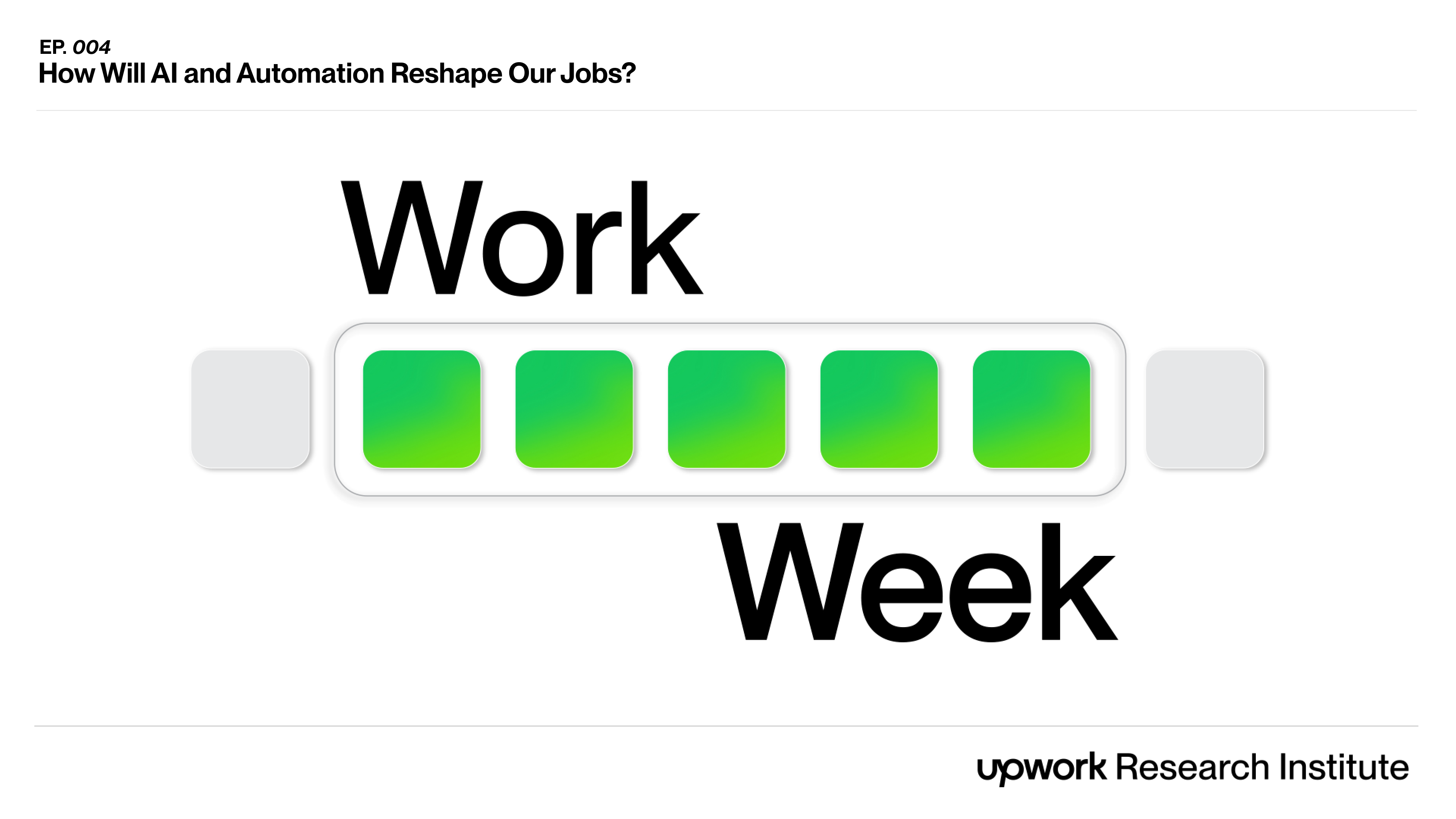

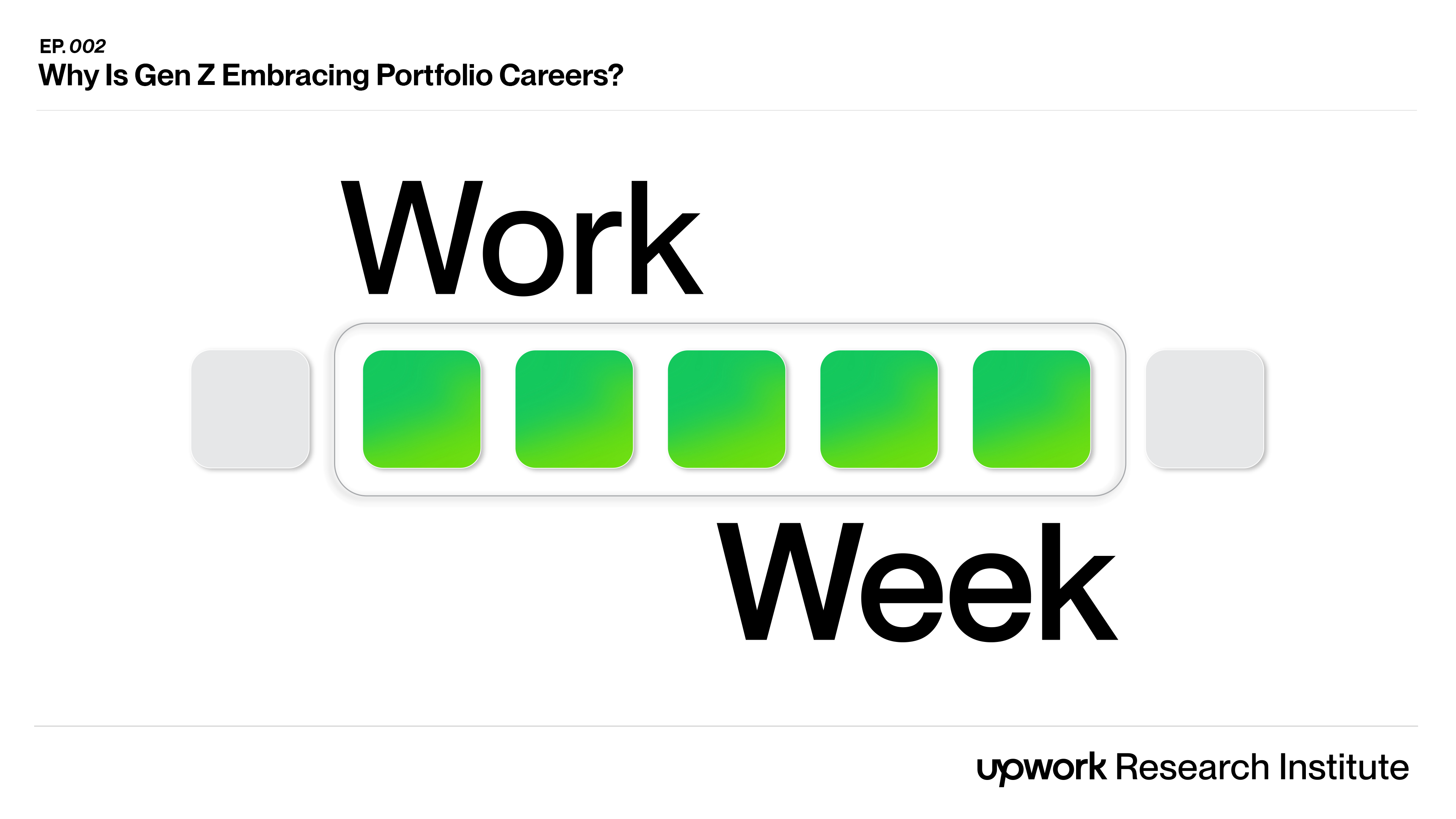
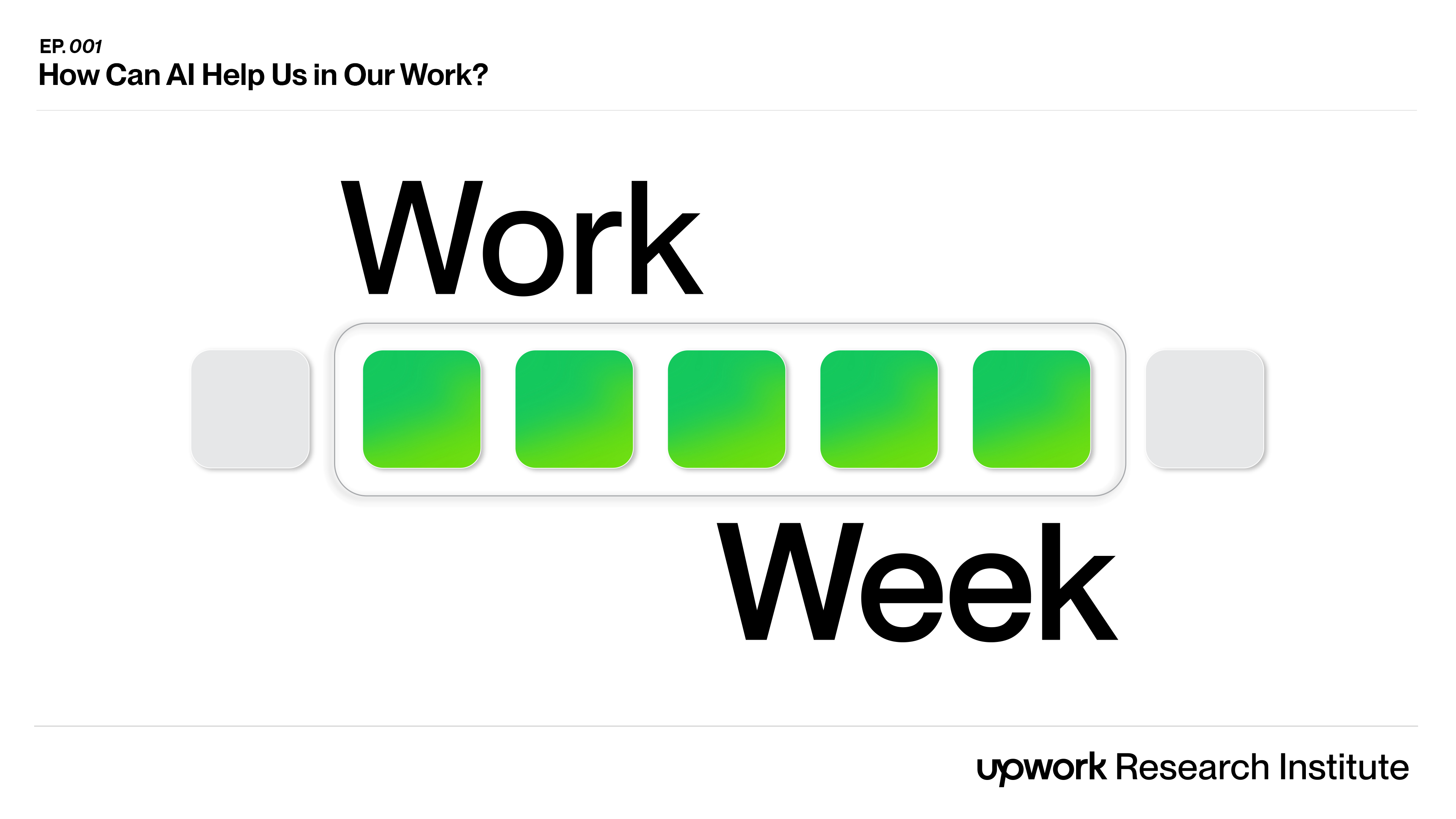
.jpg)